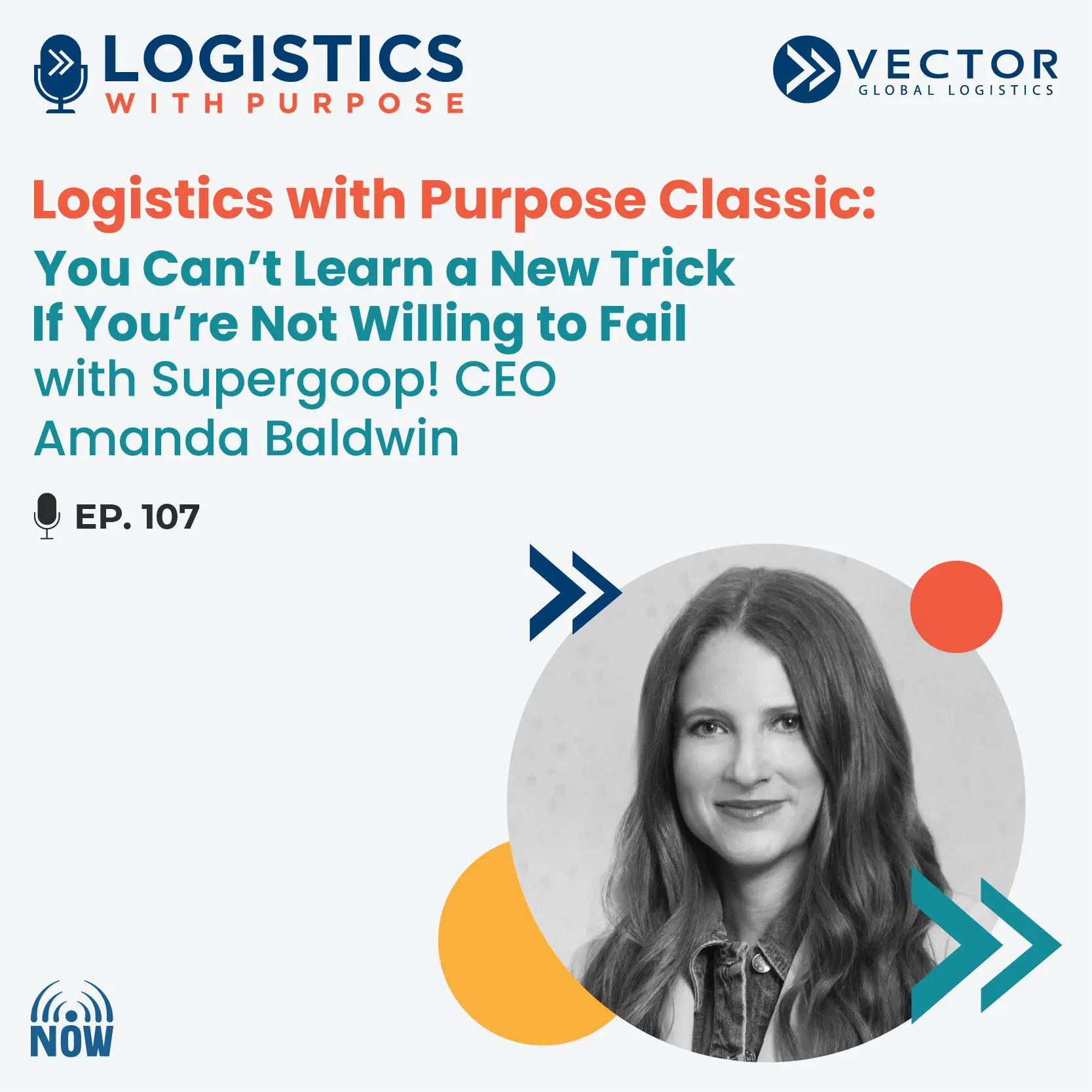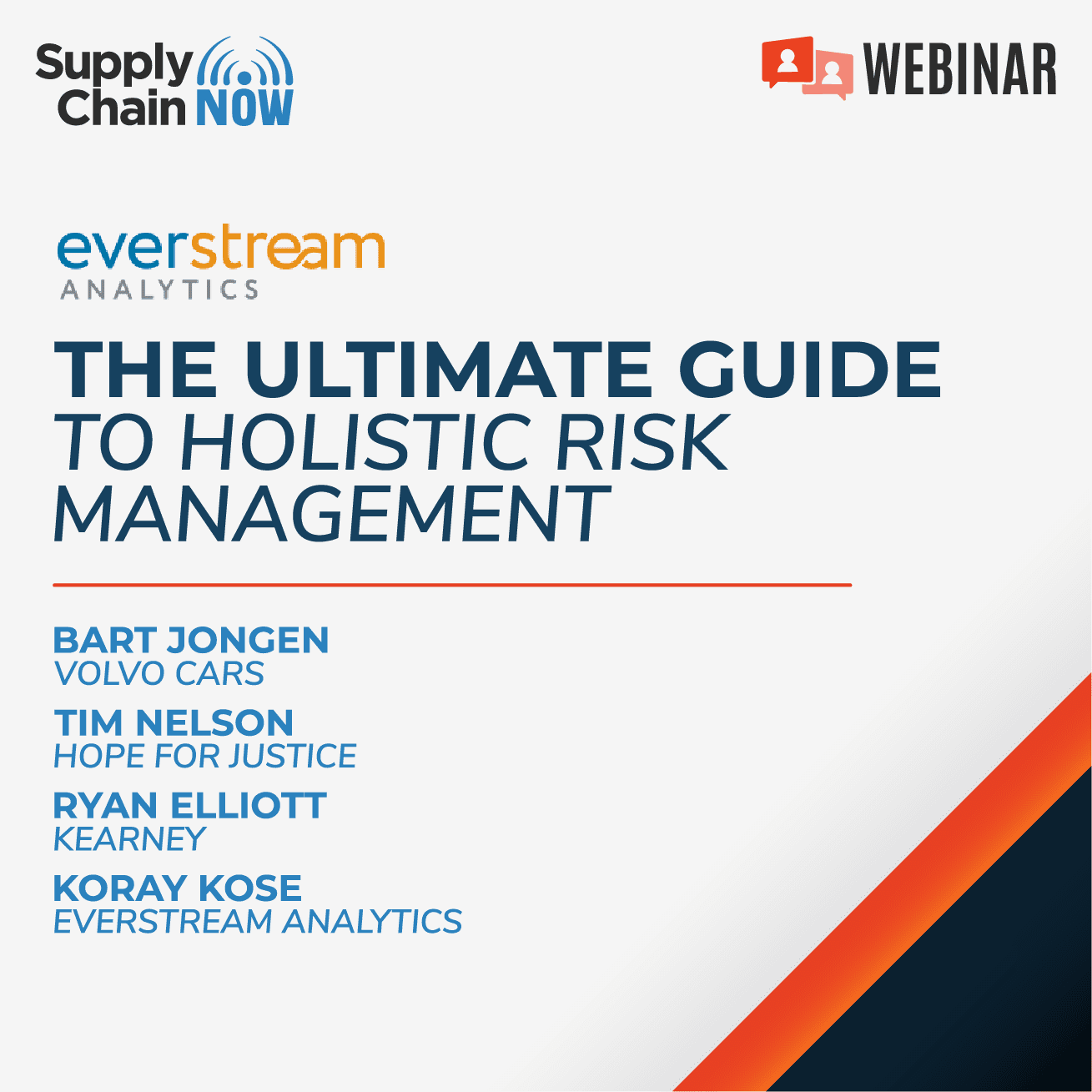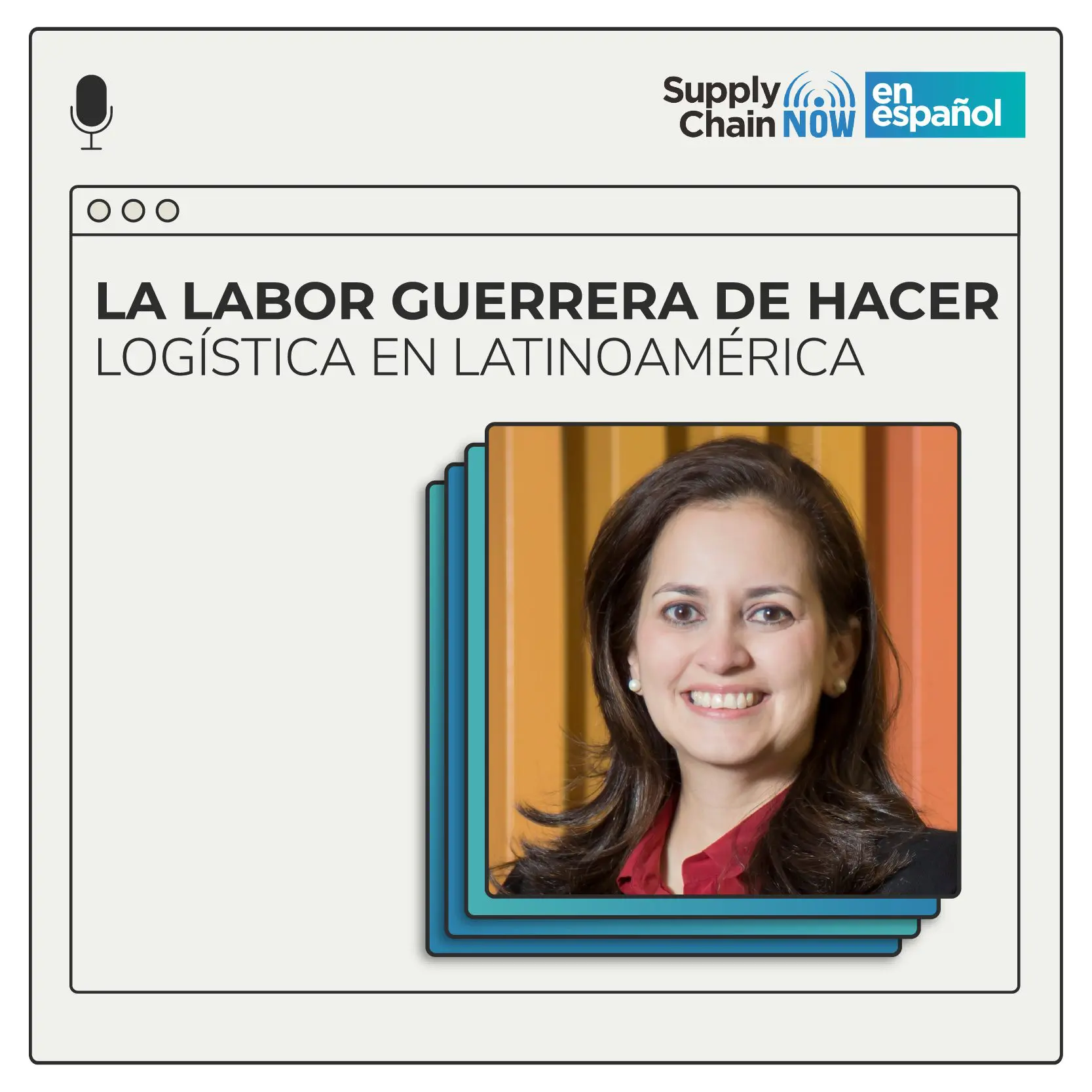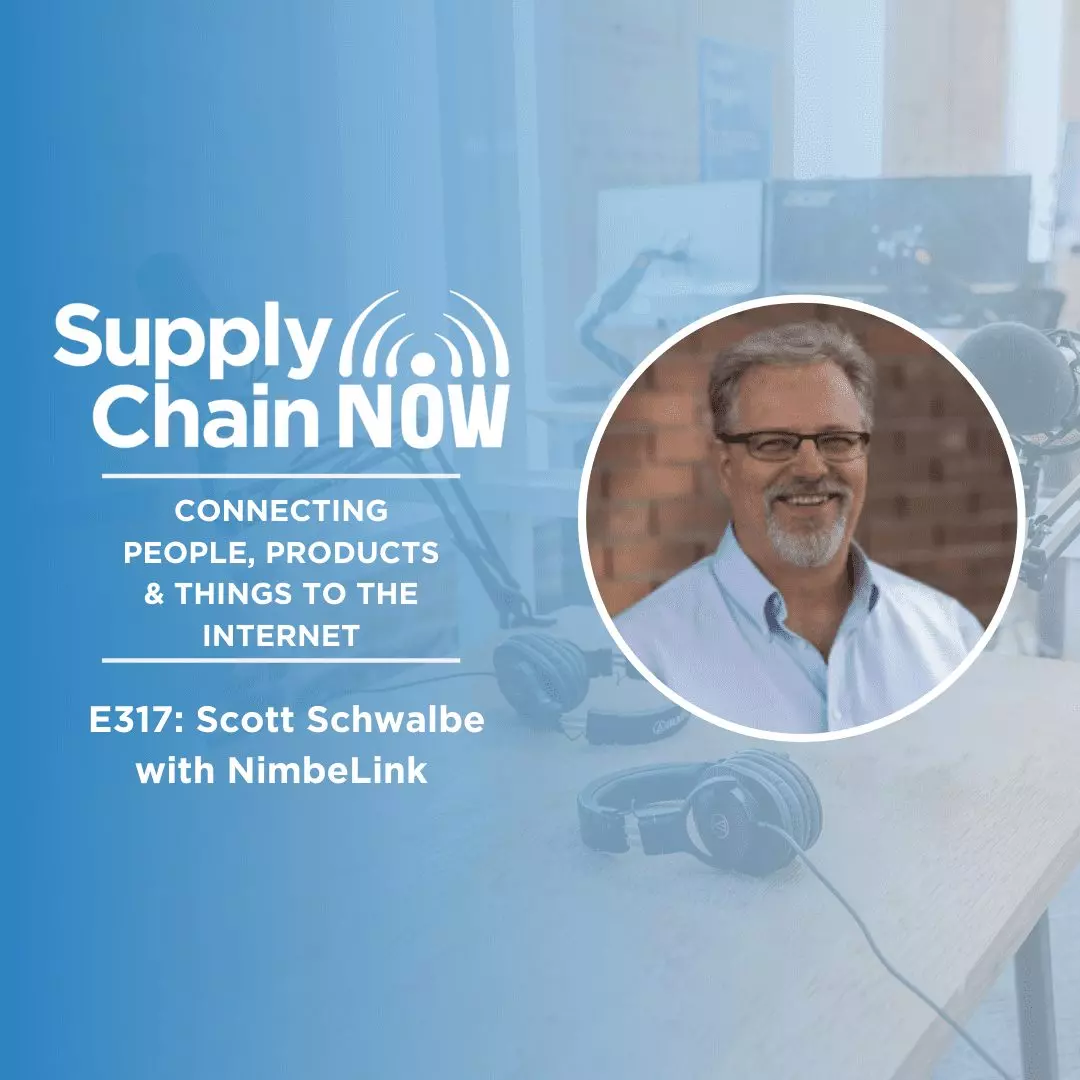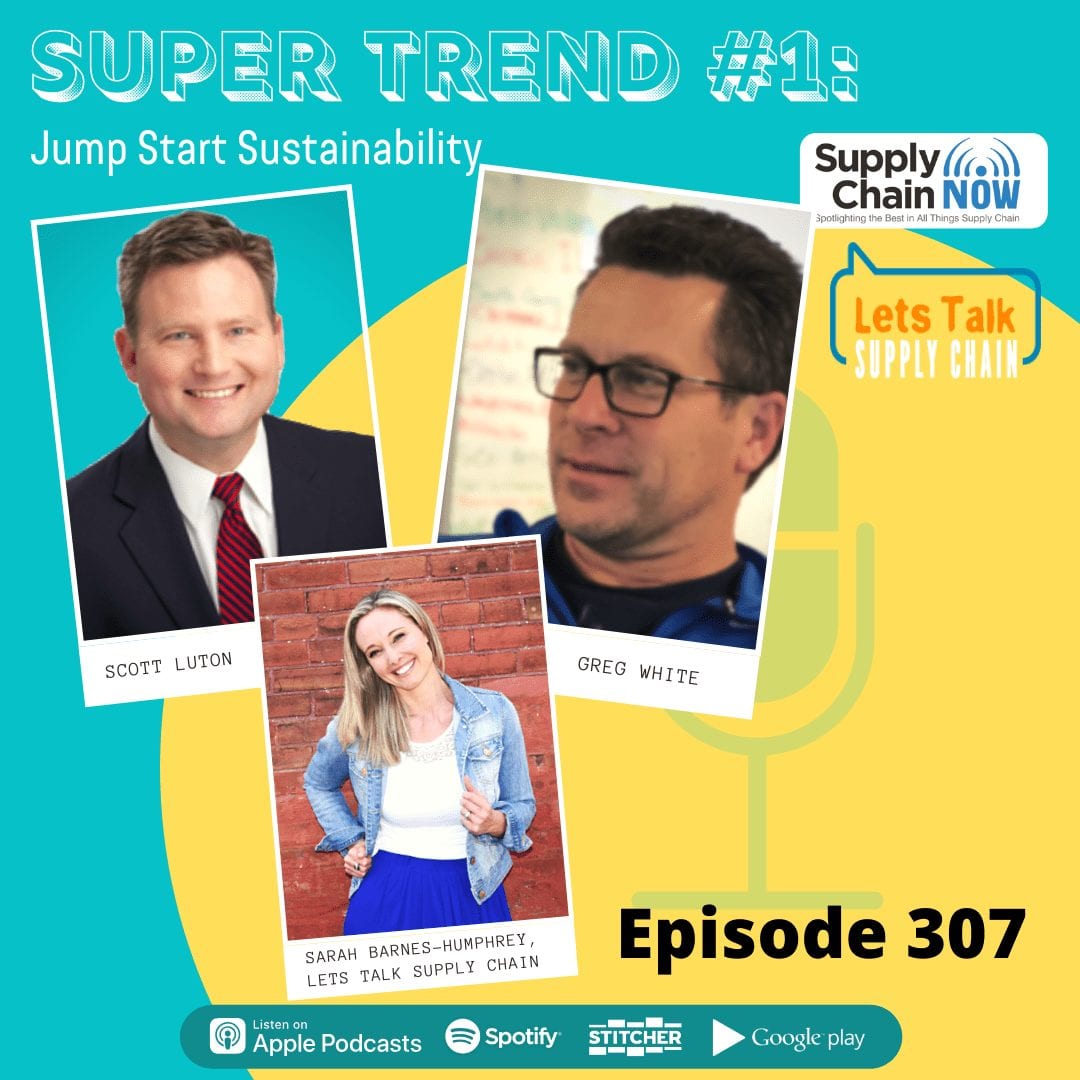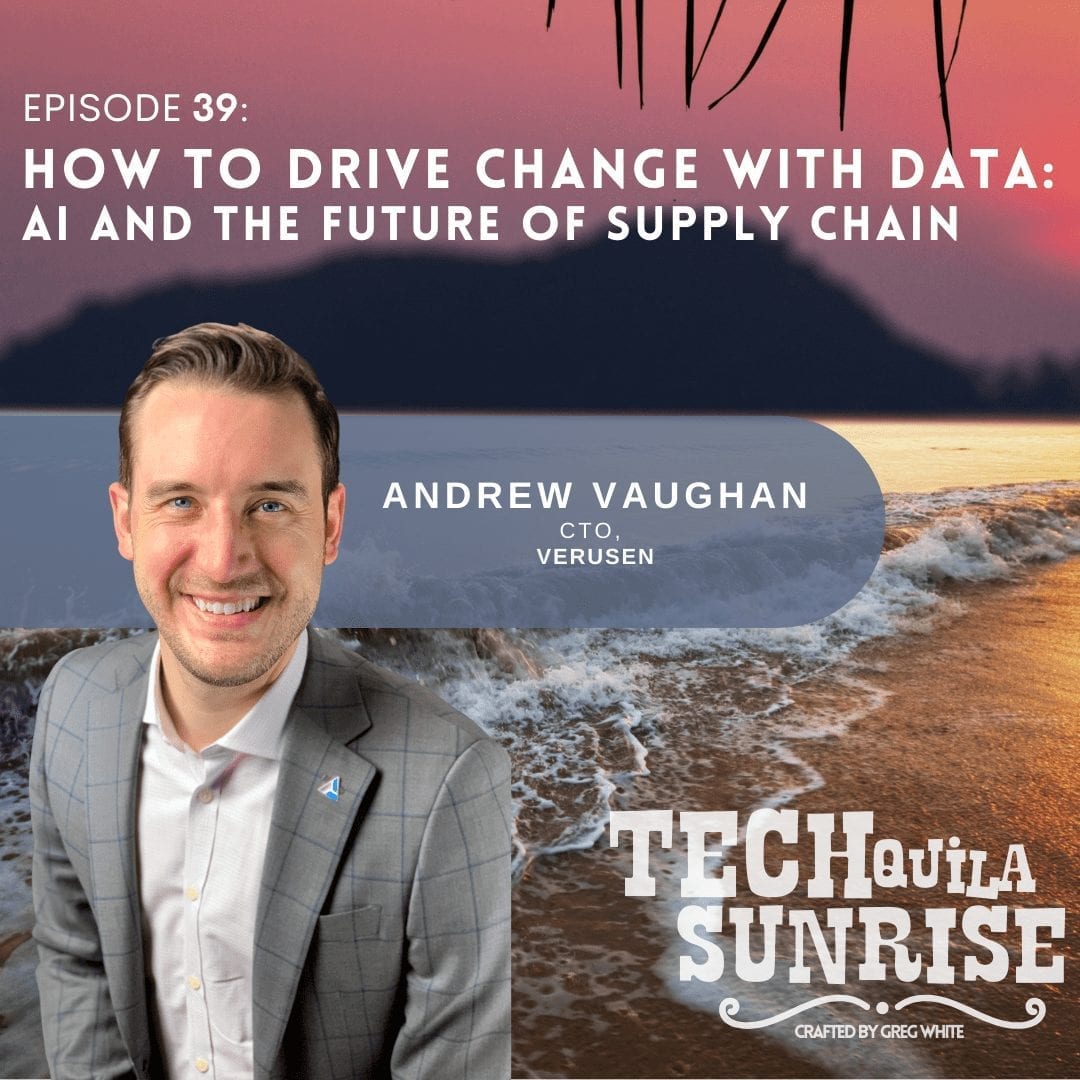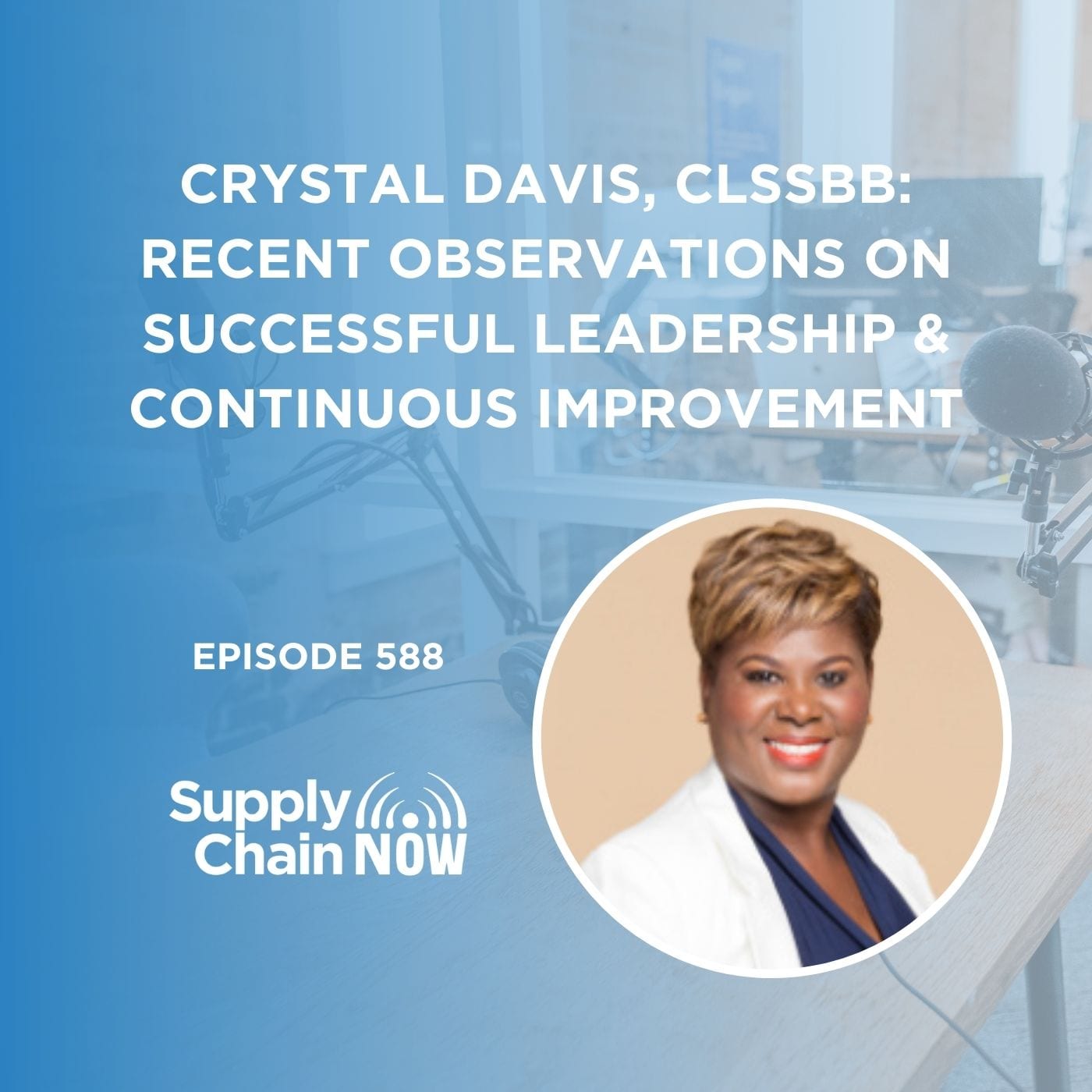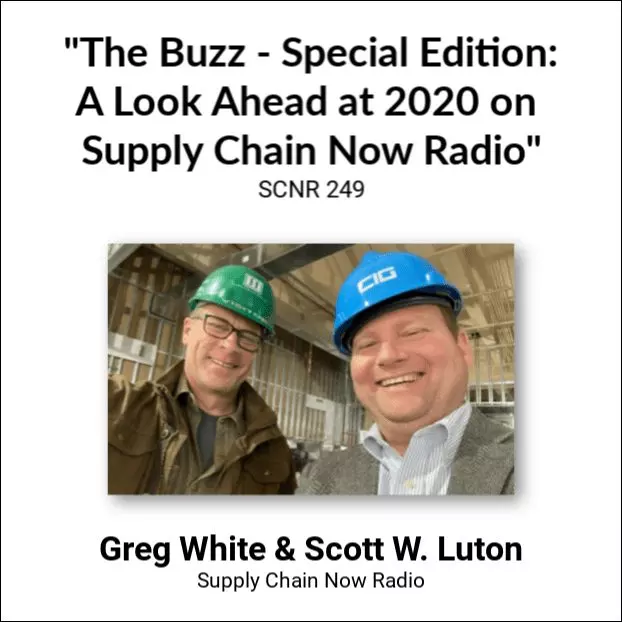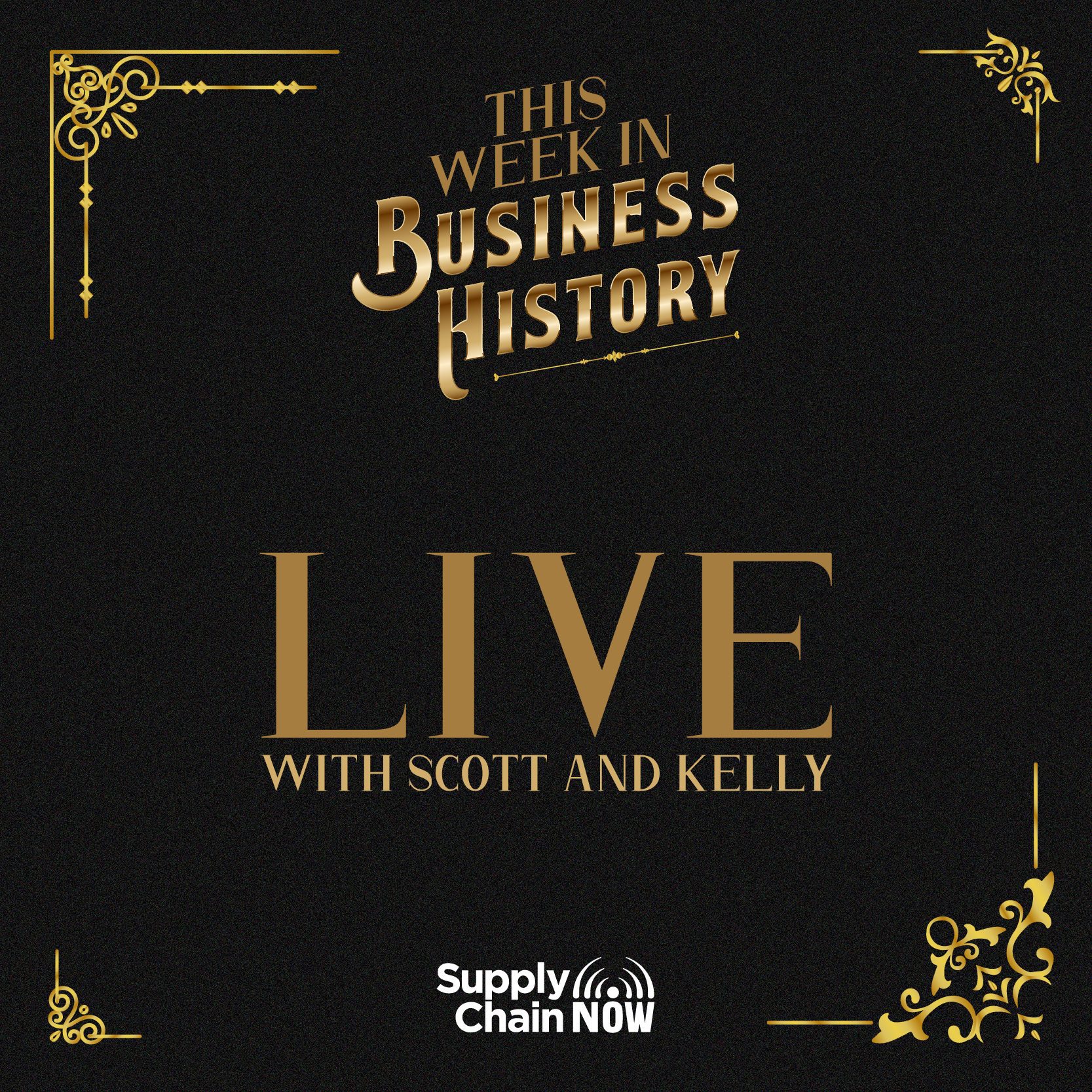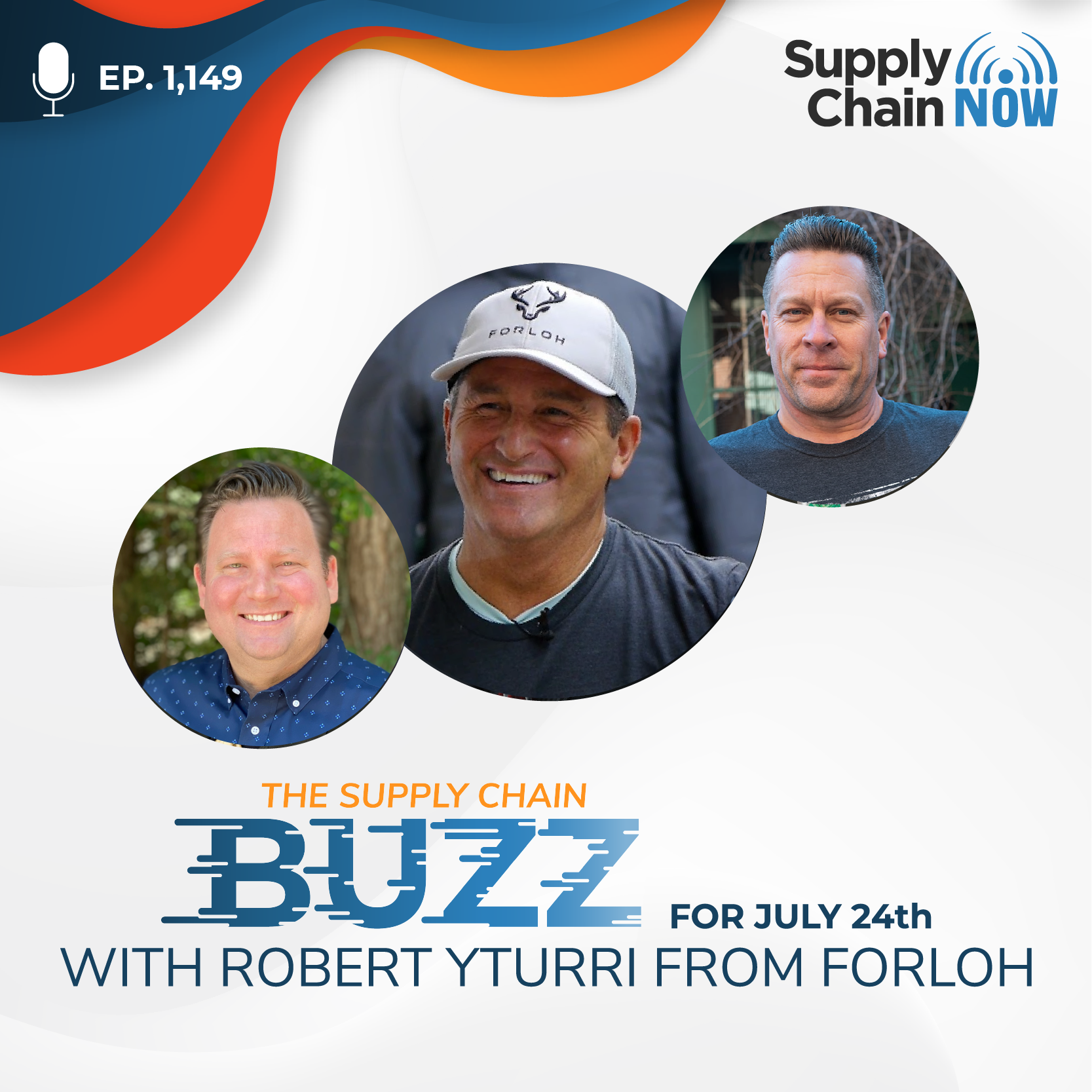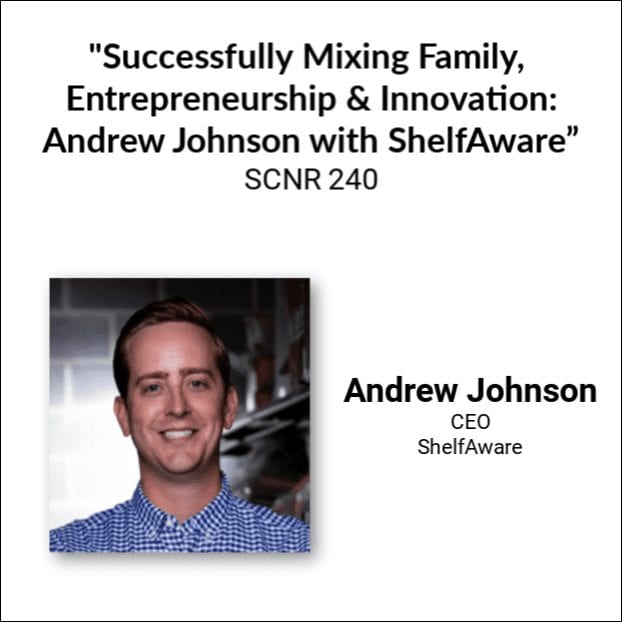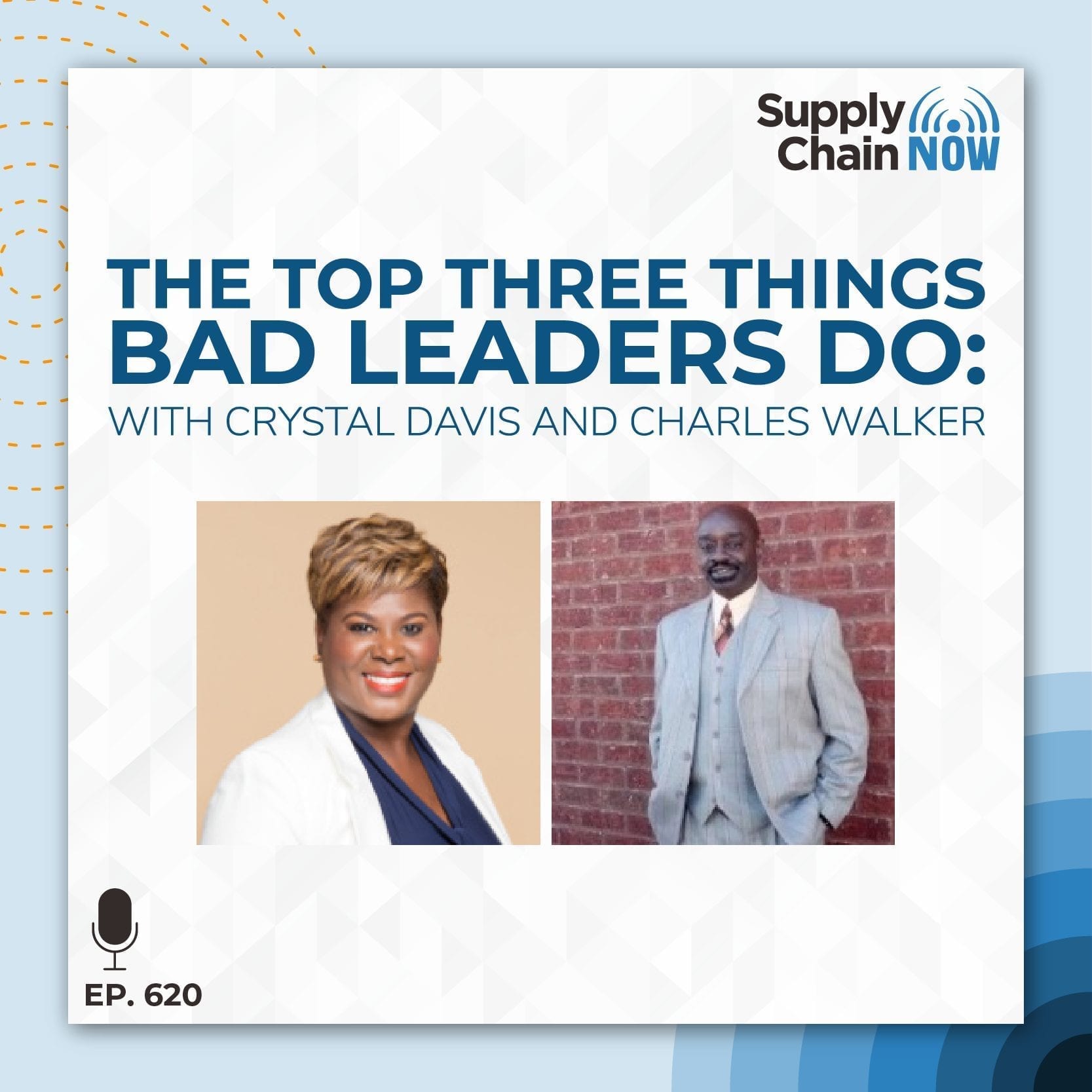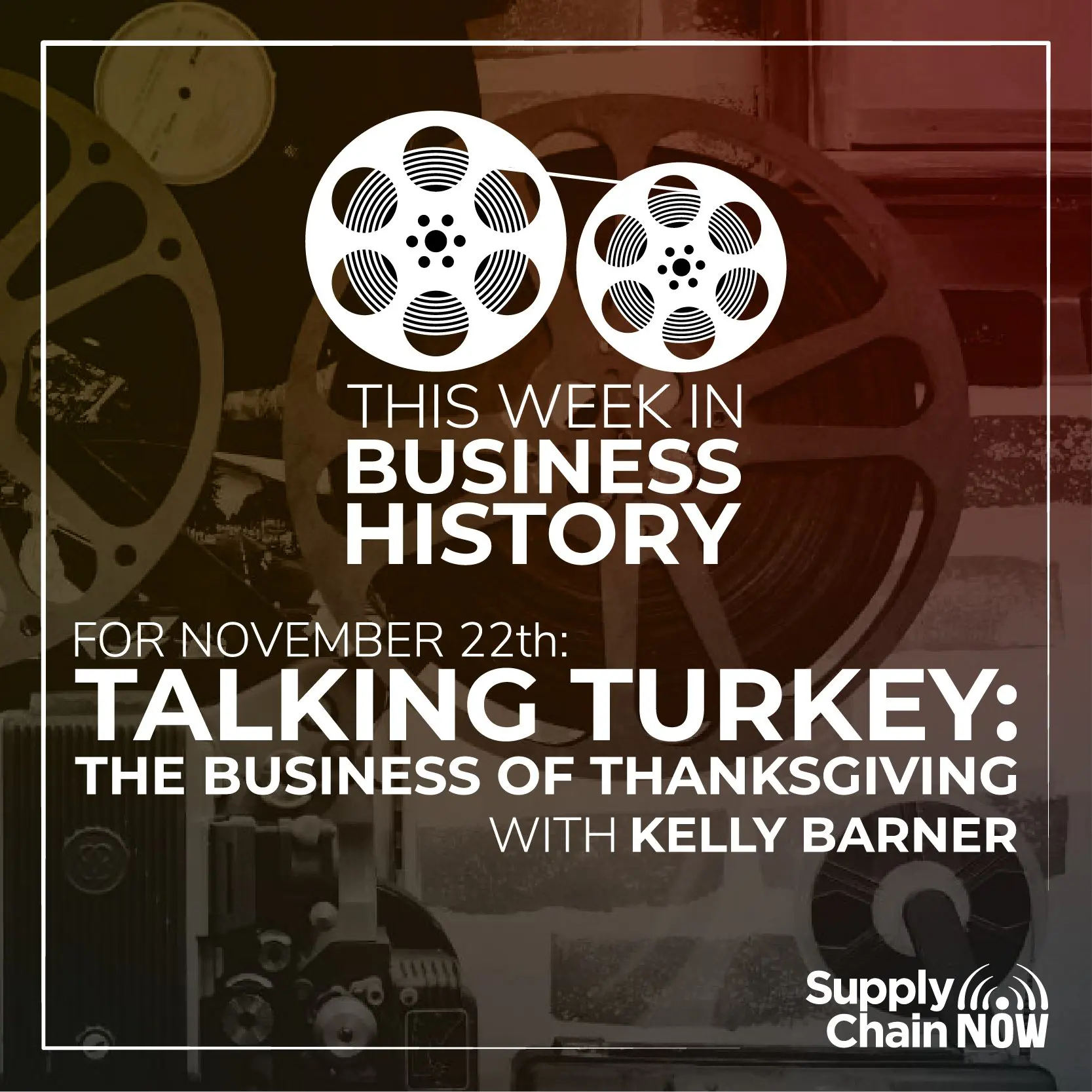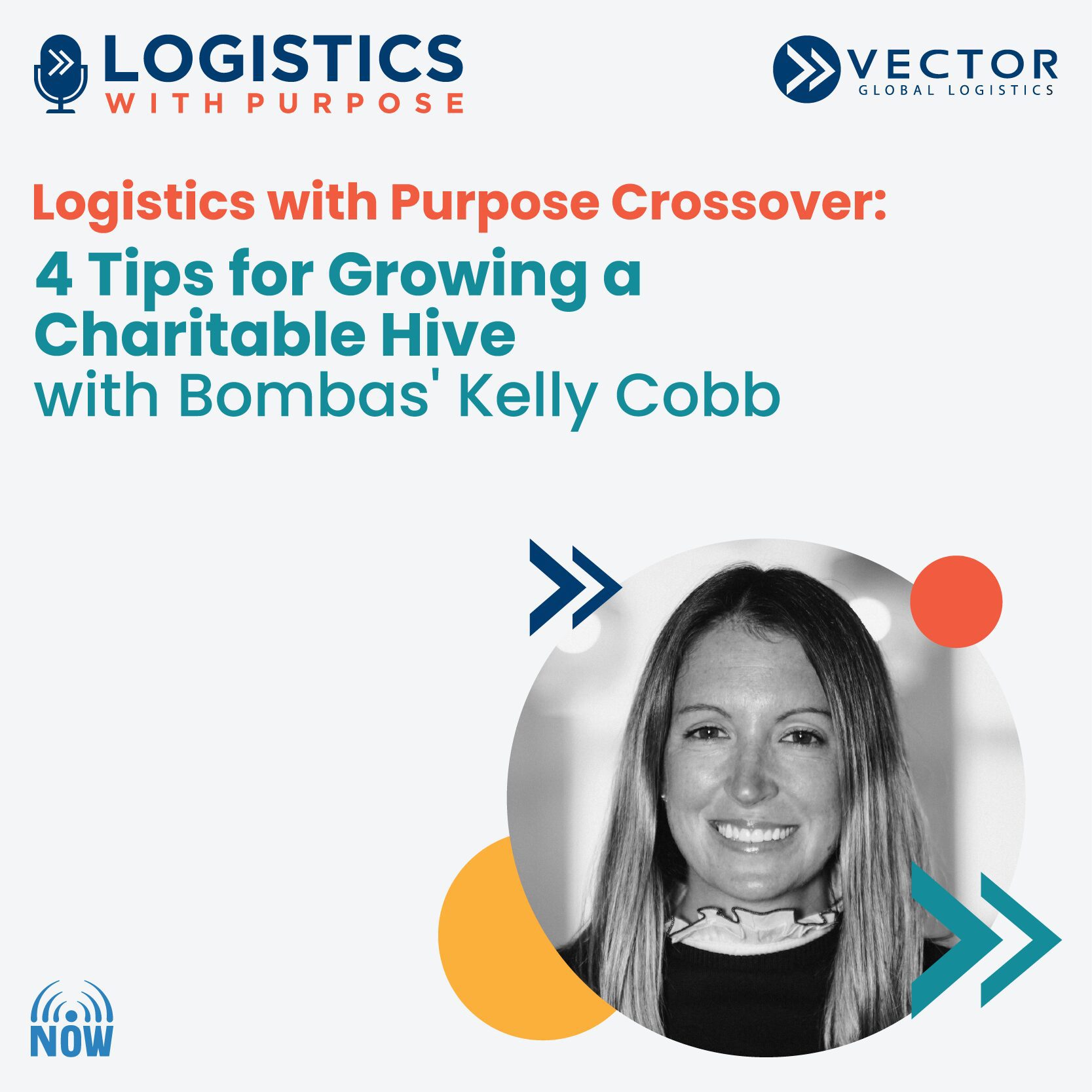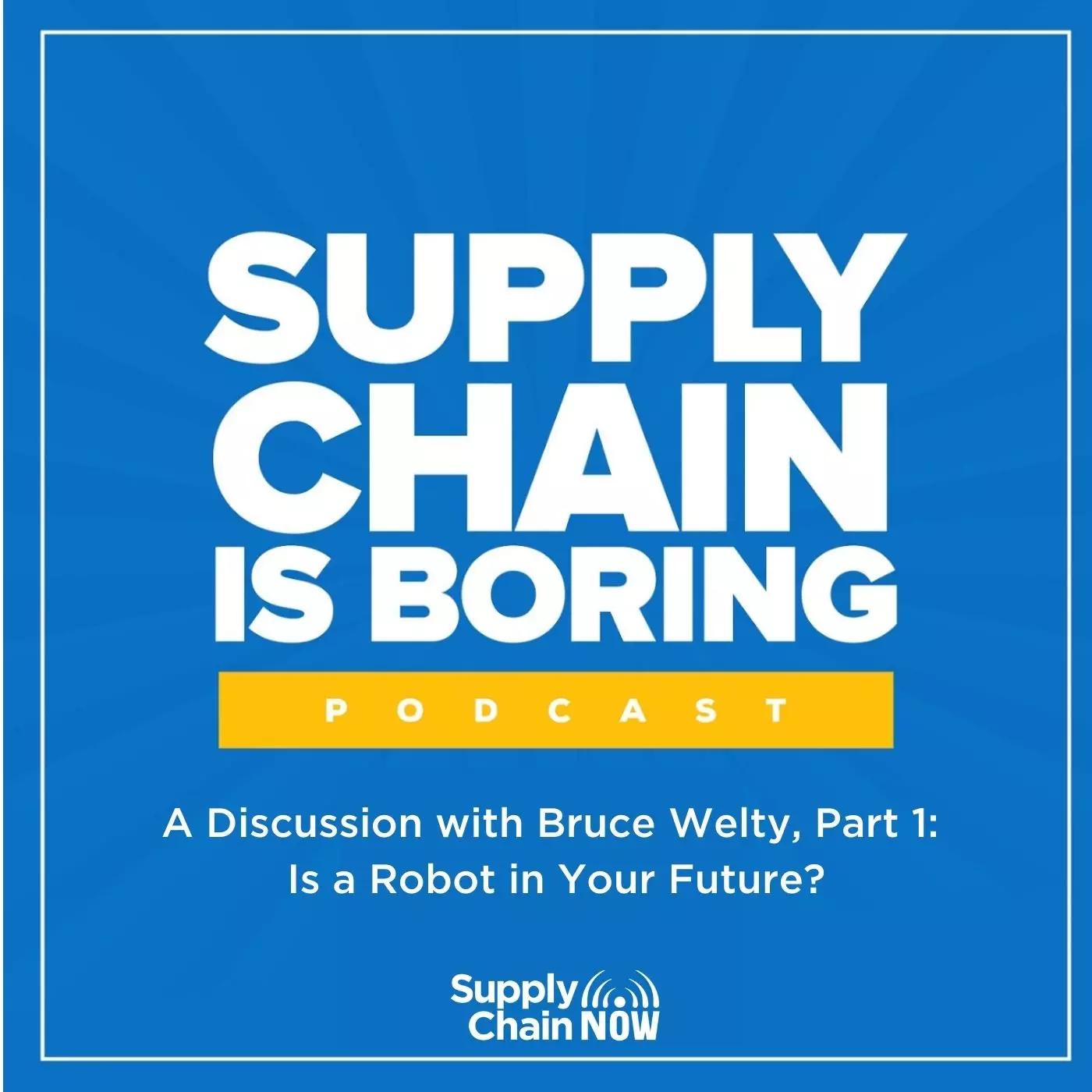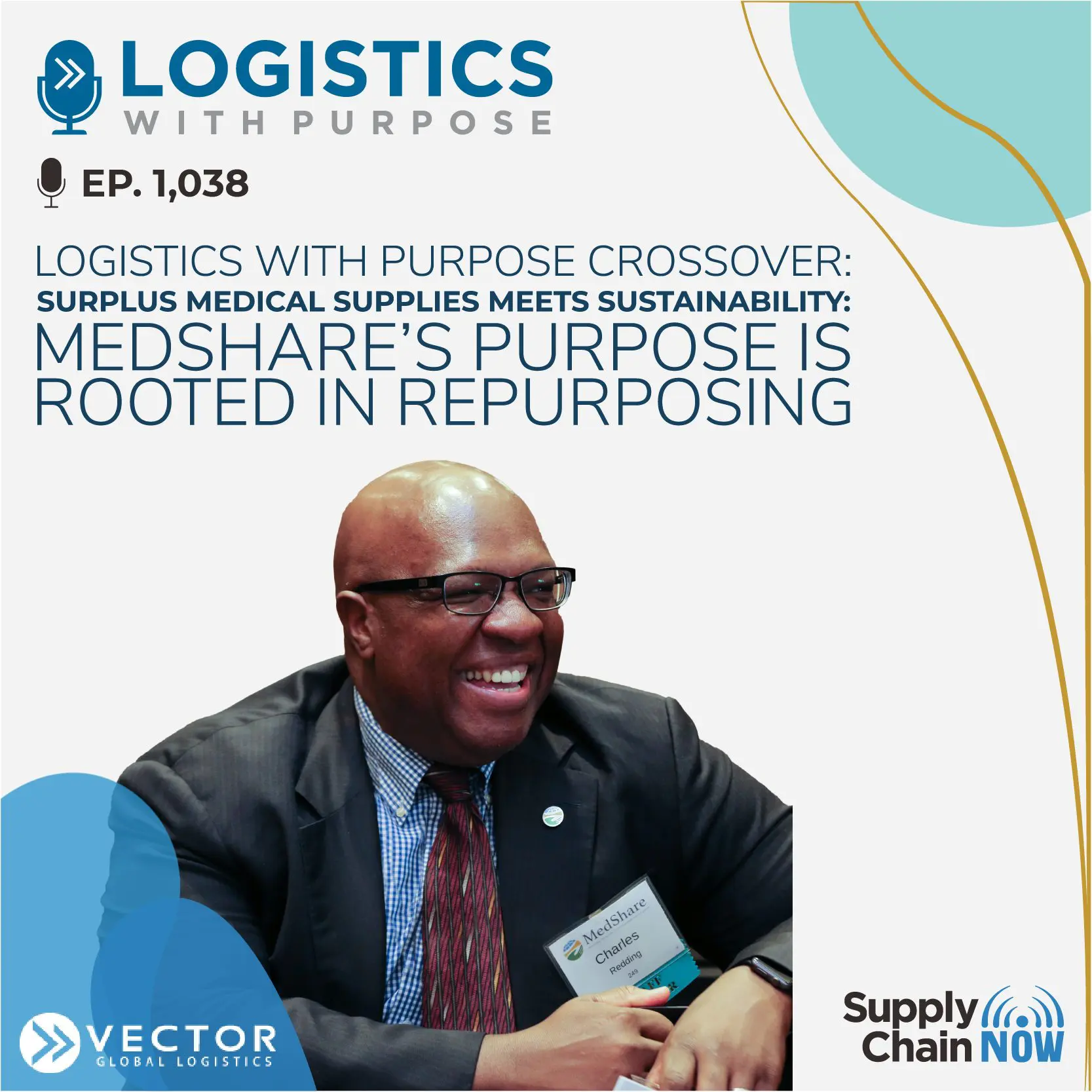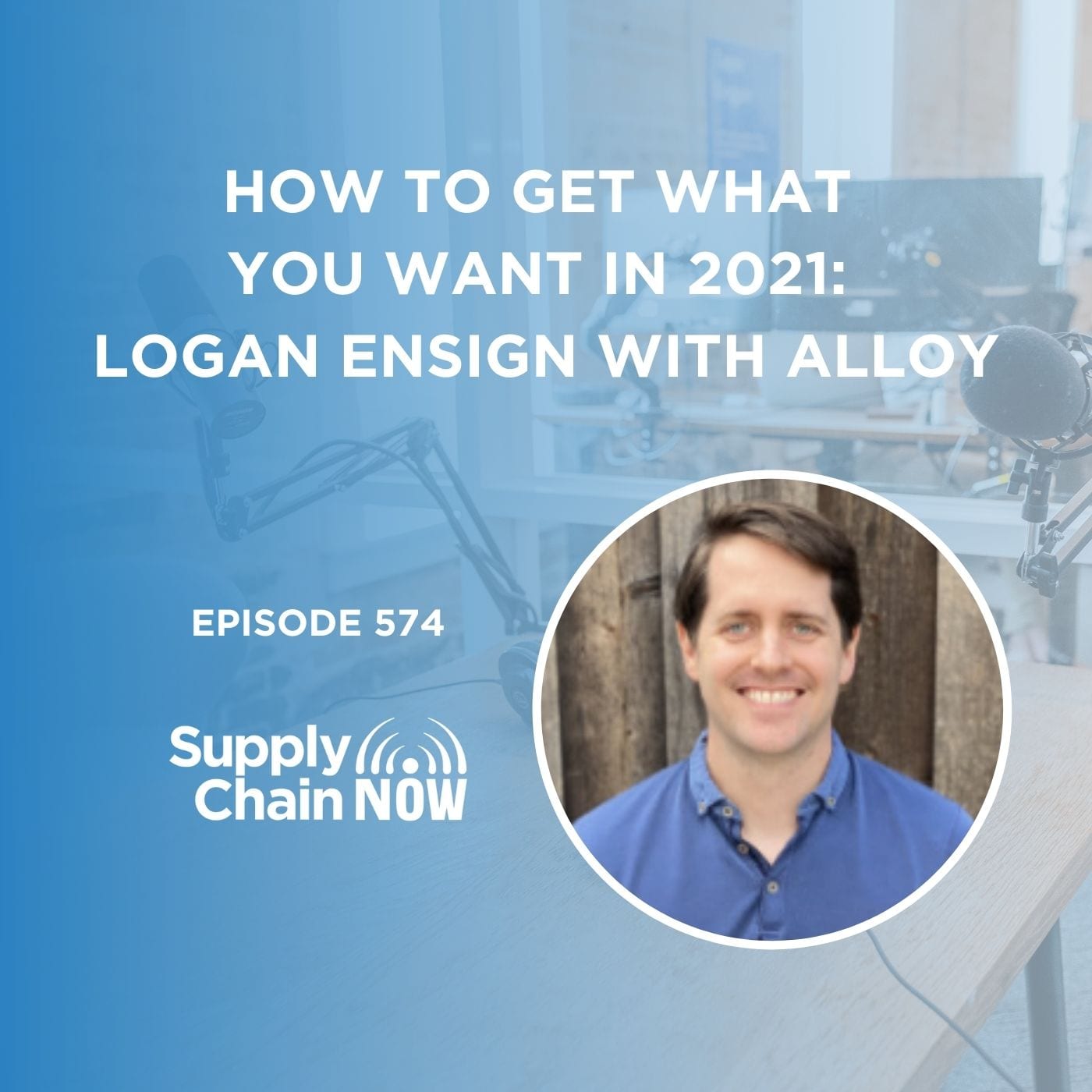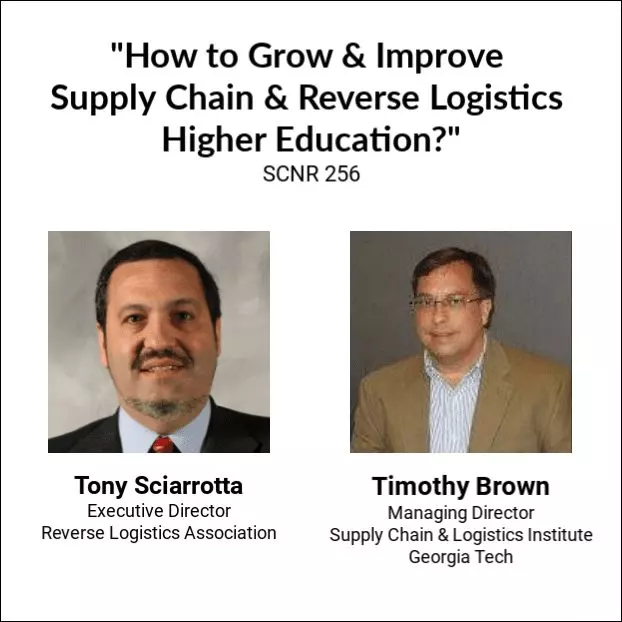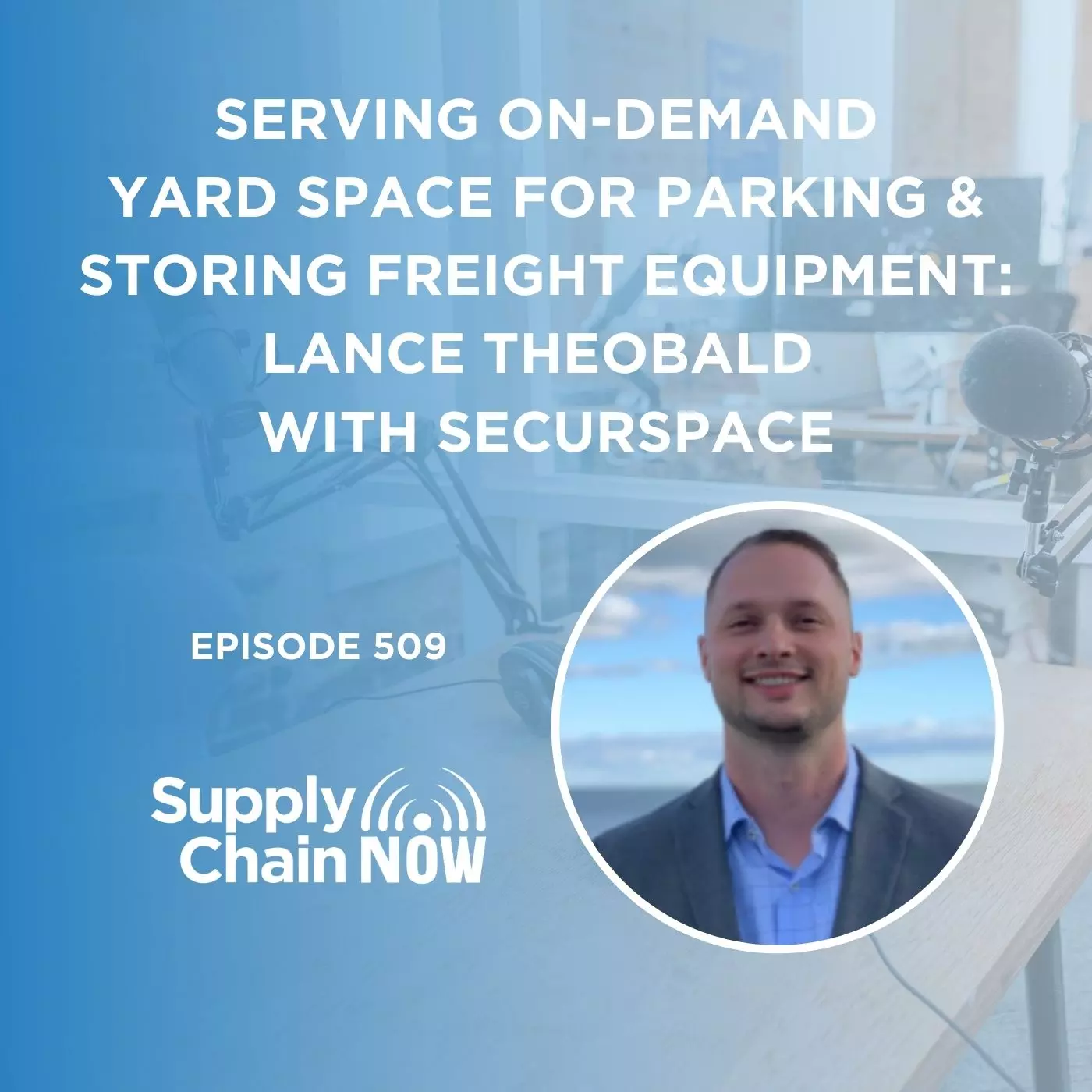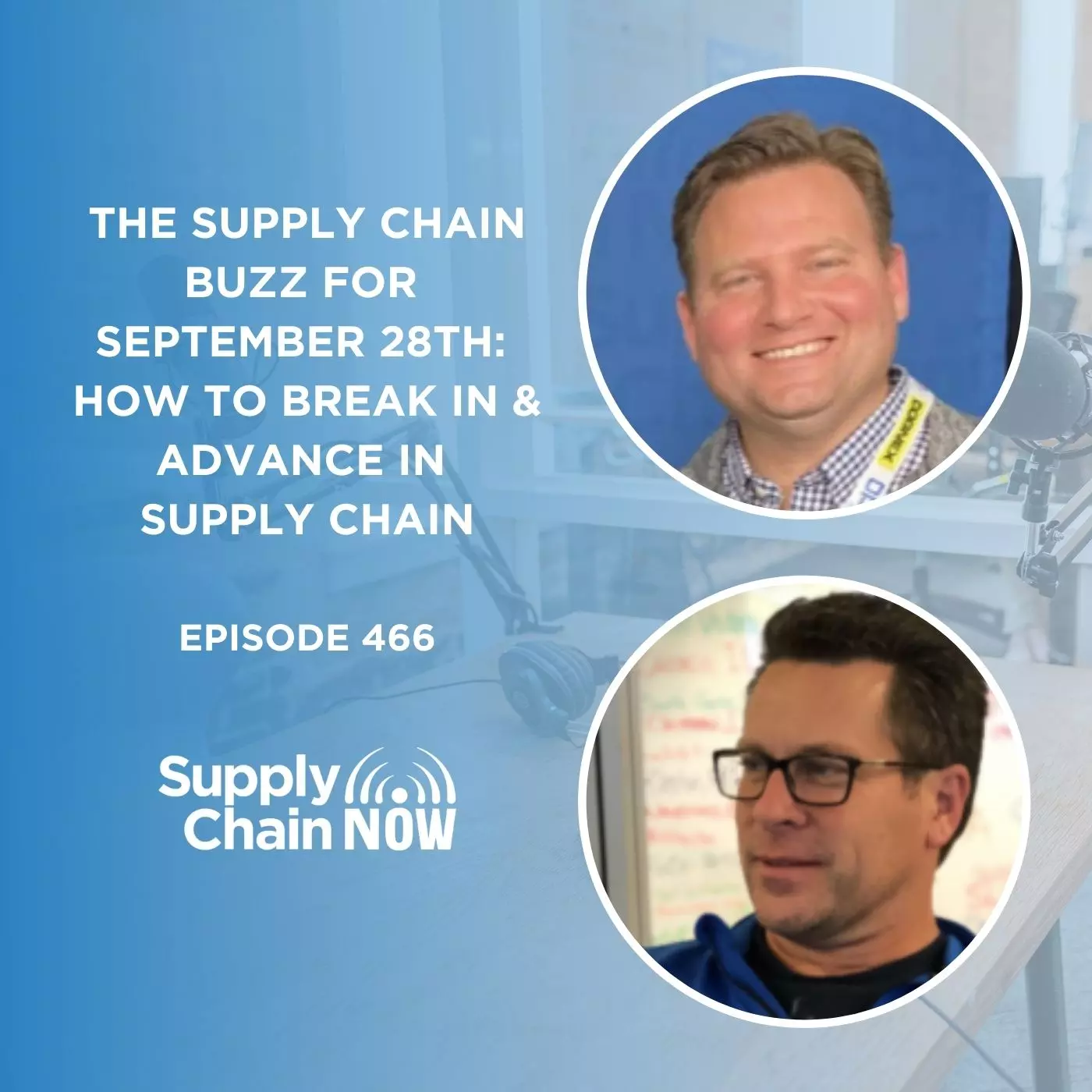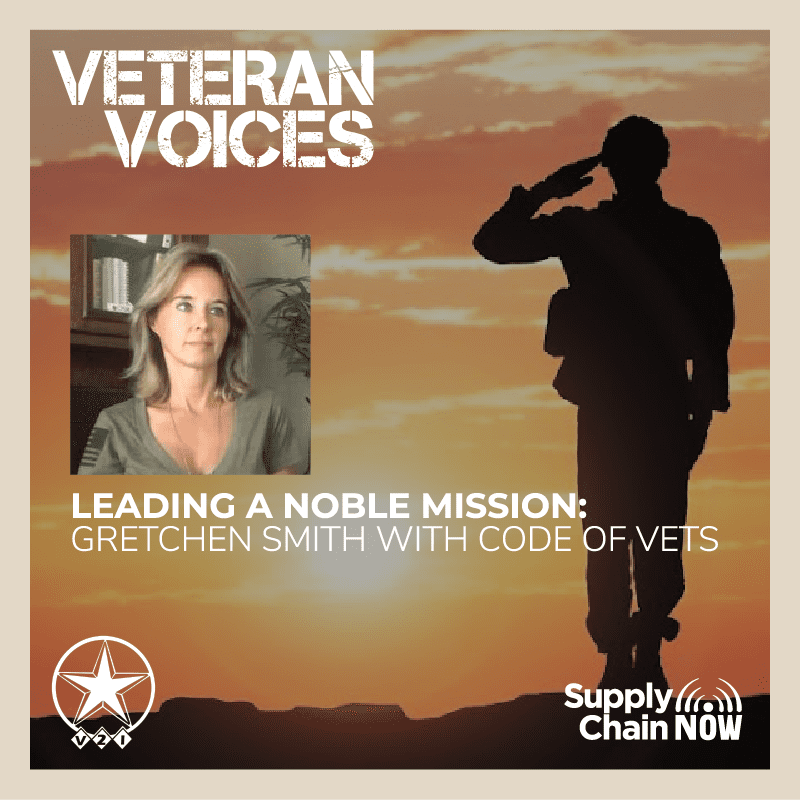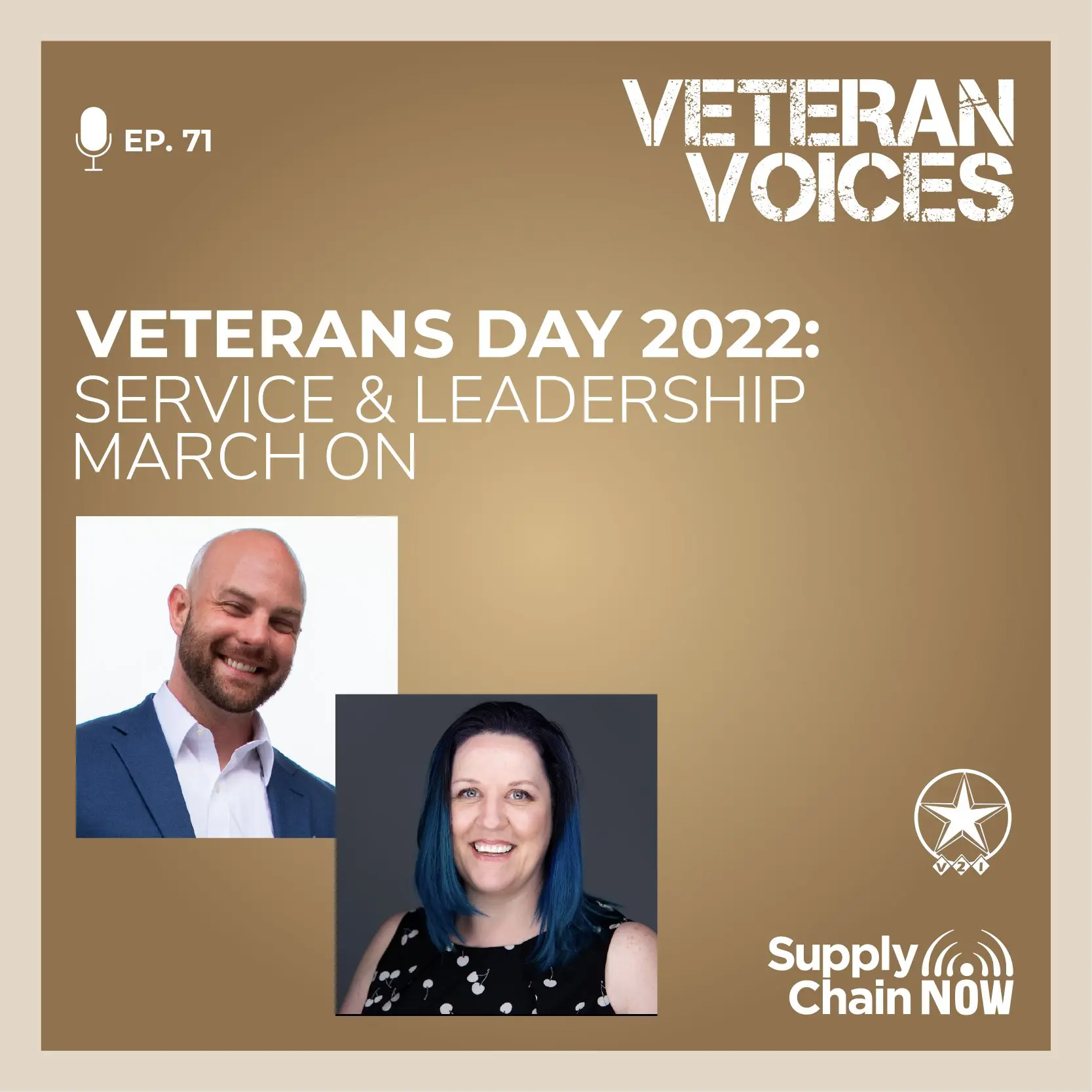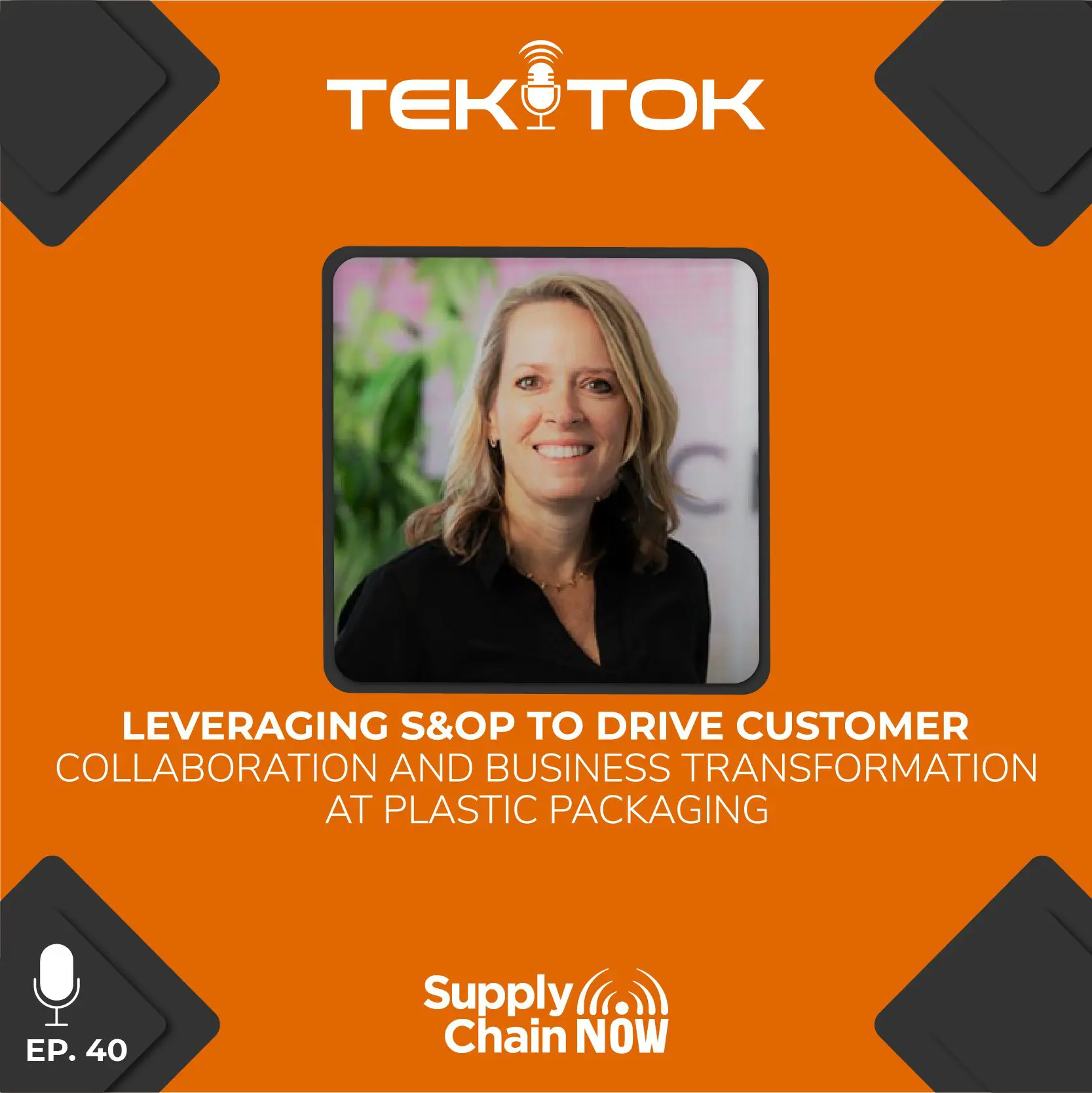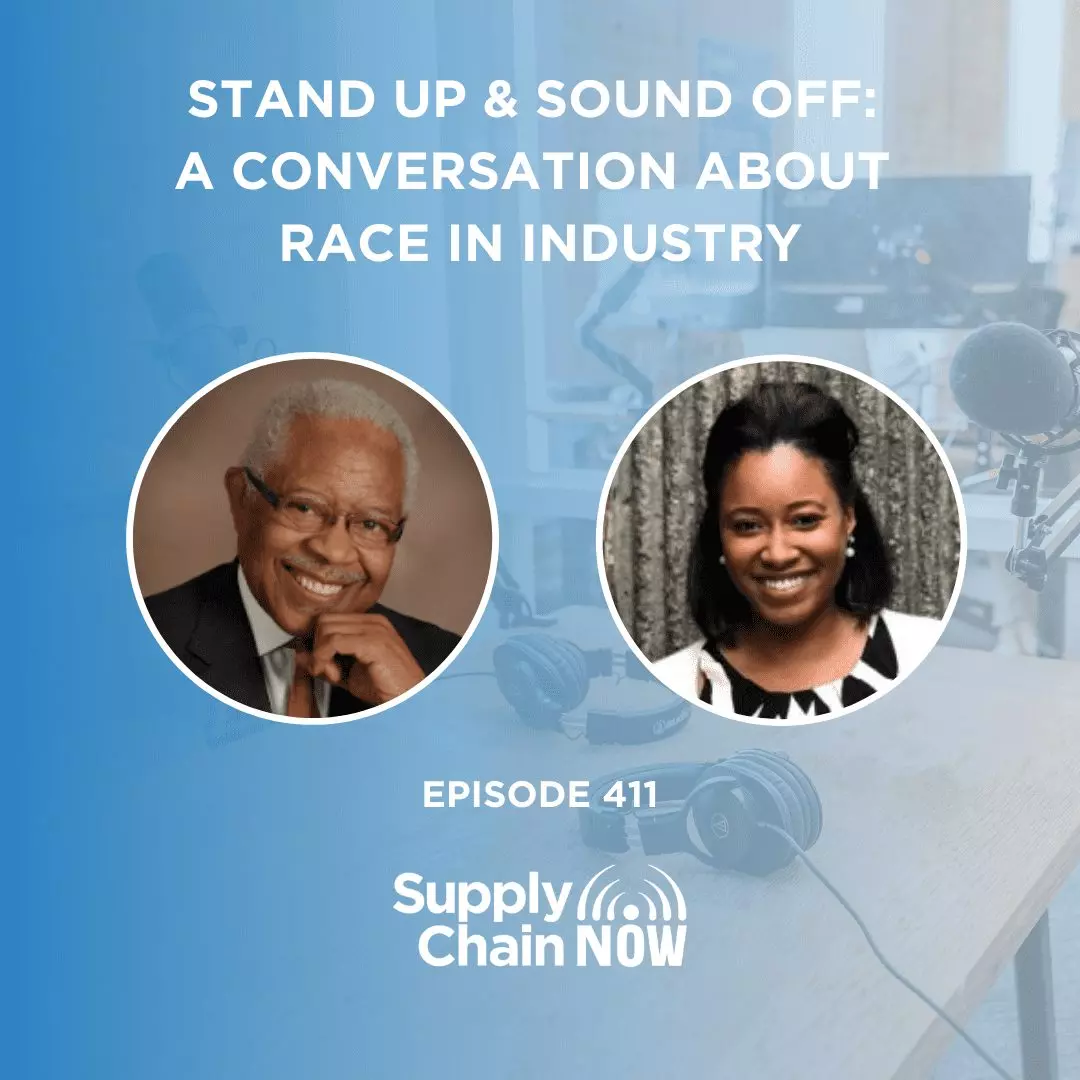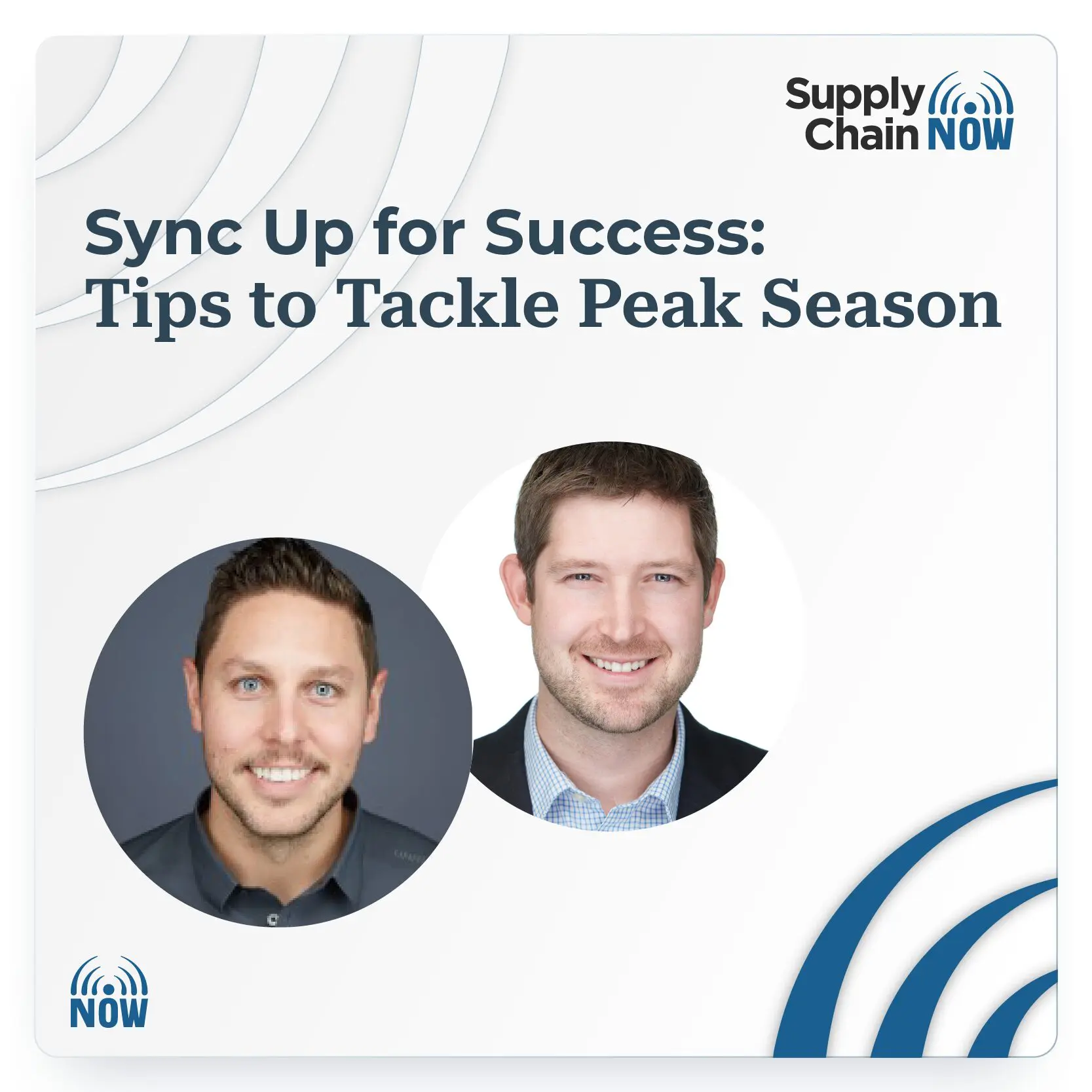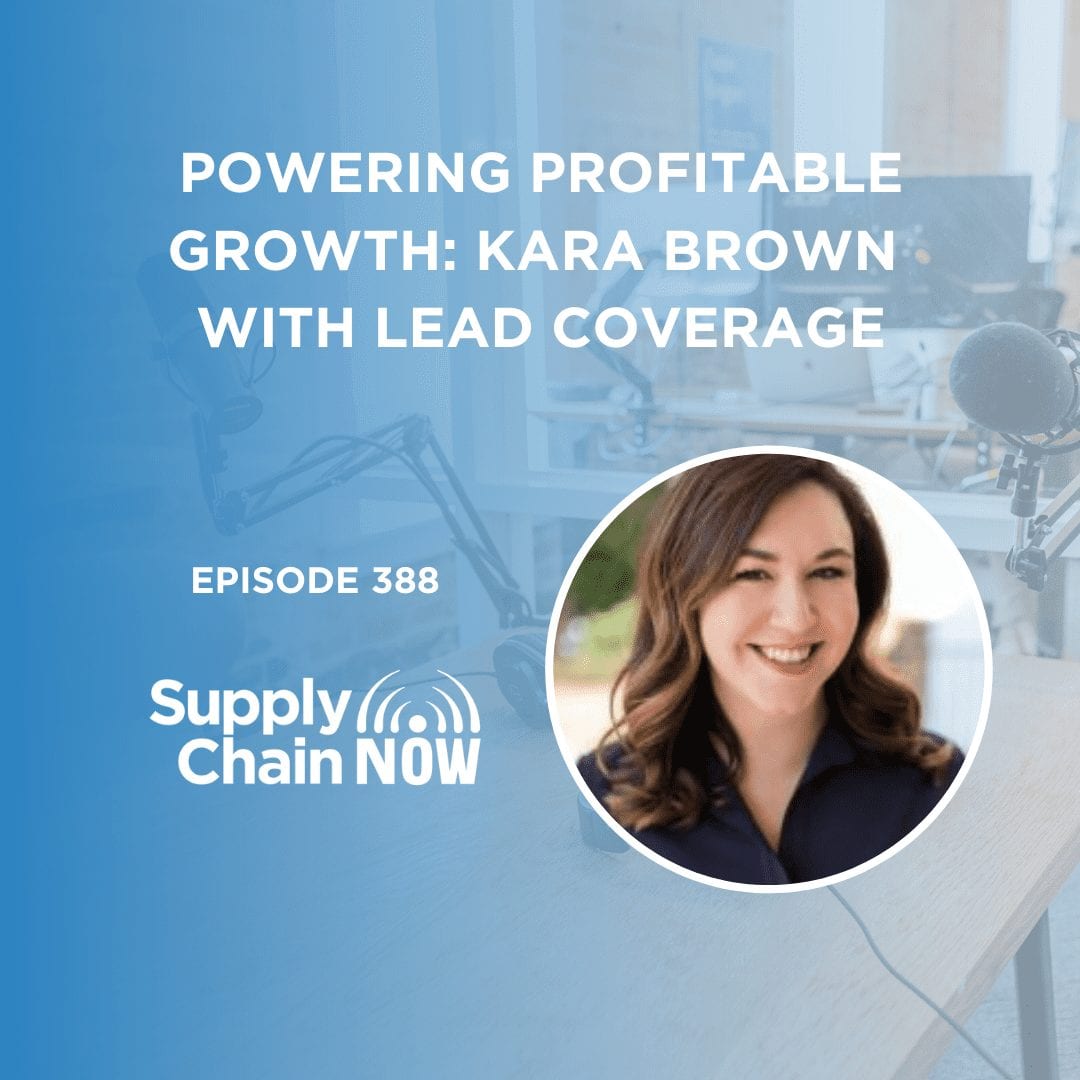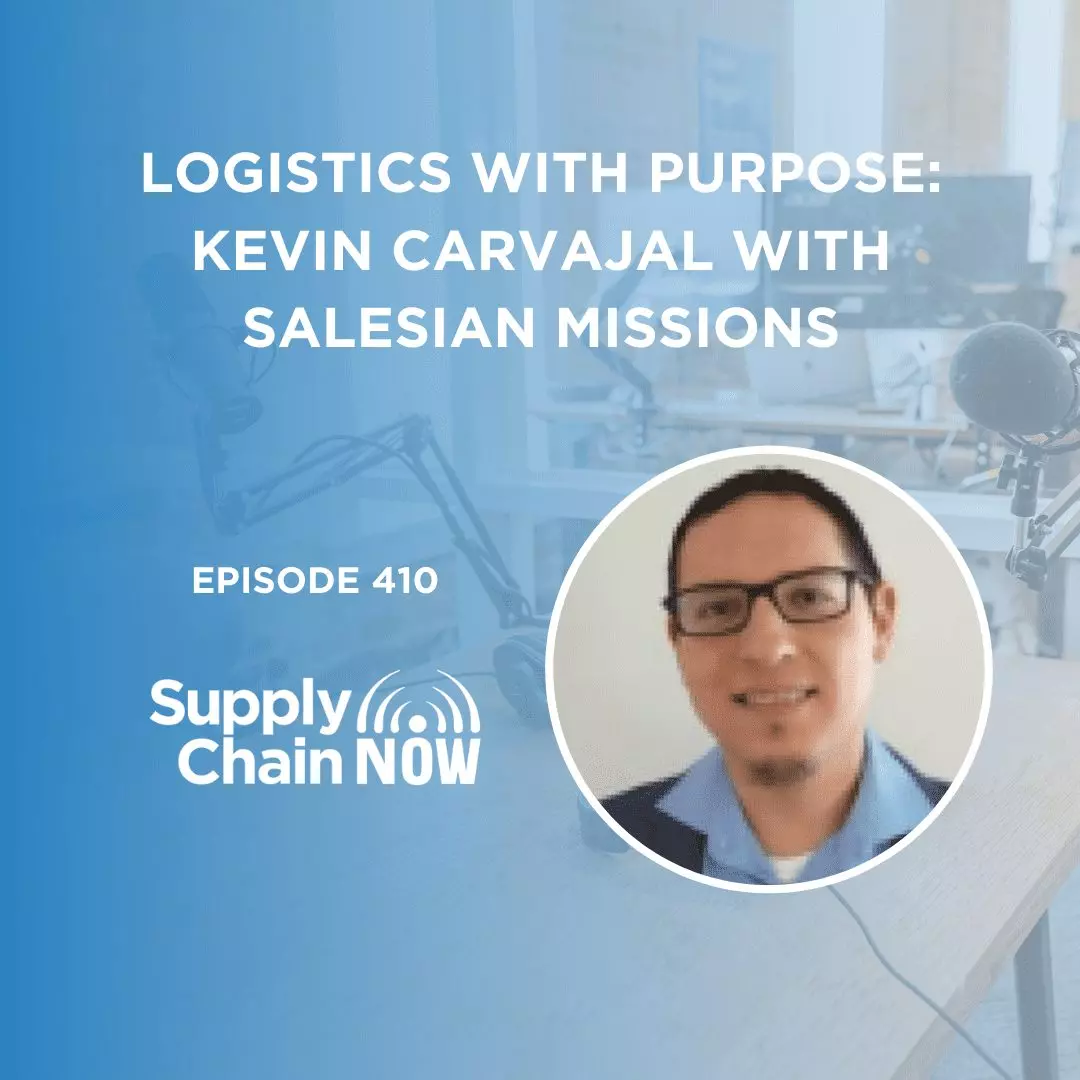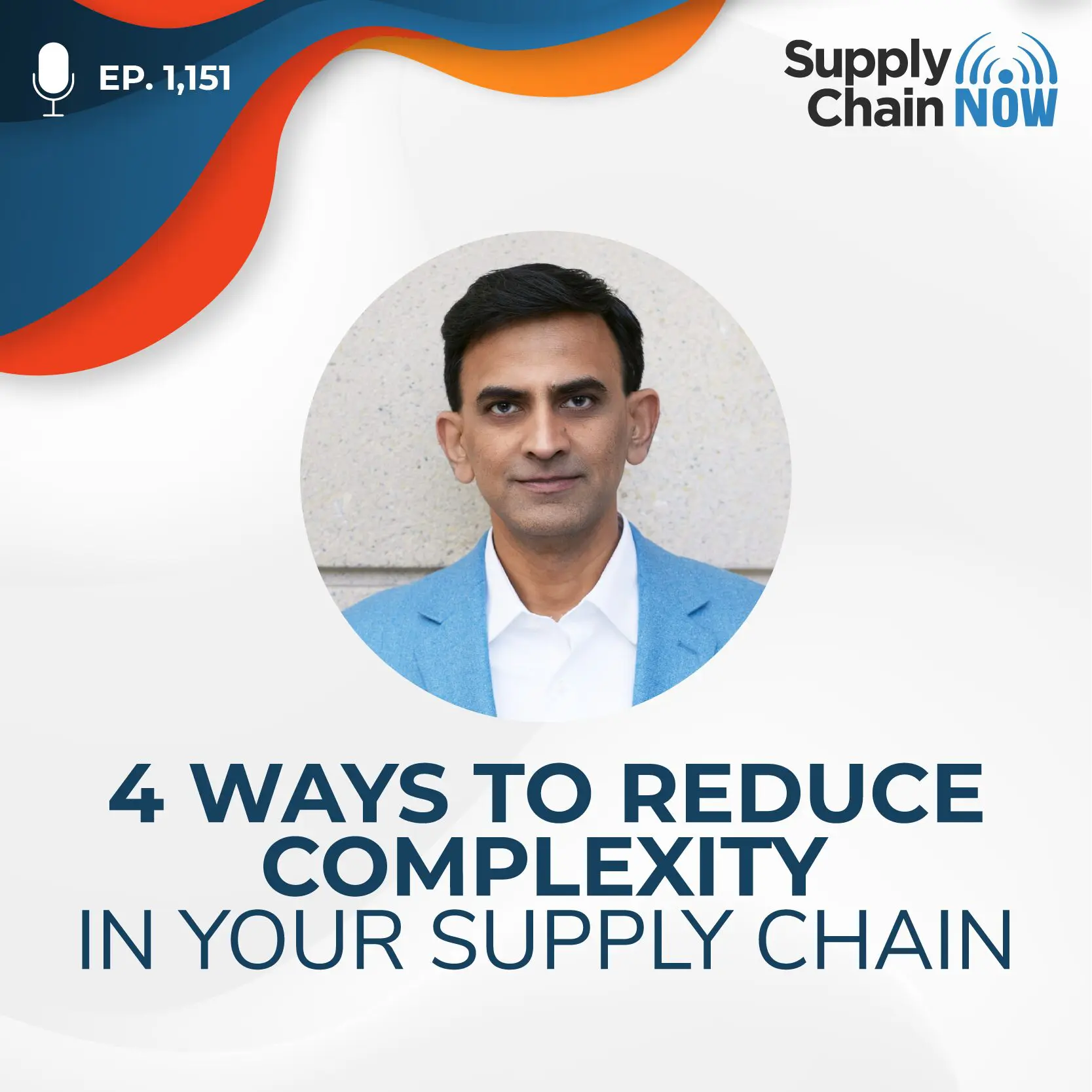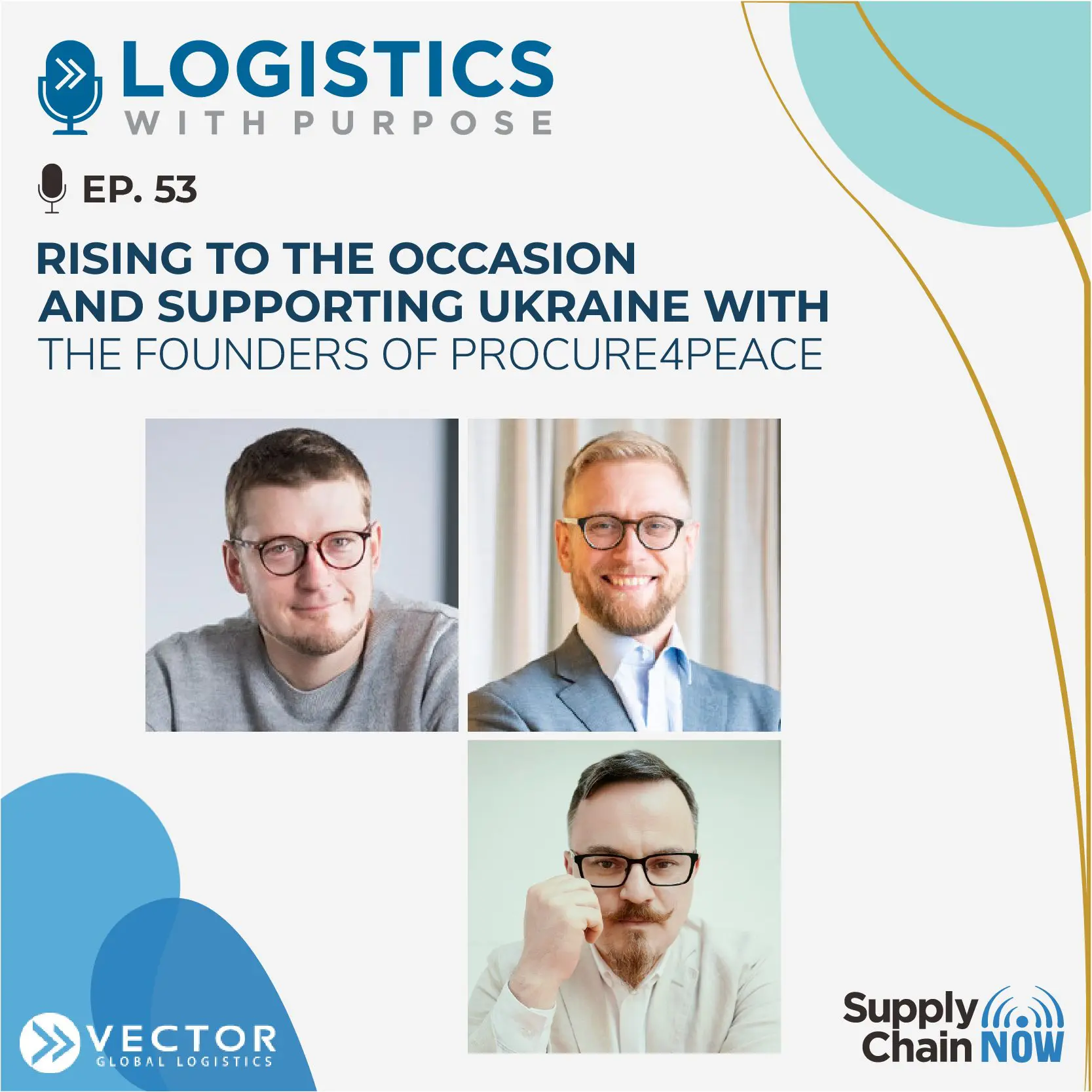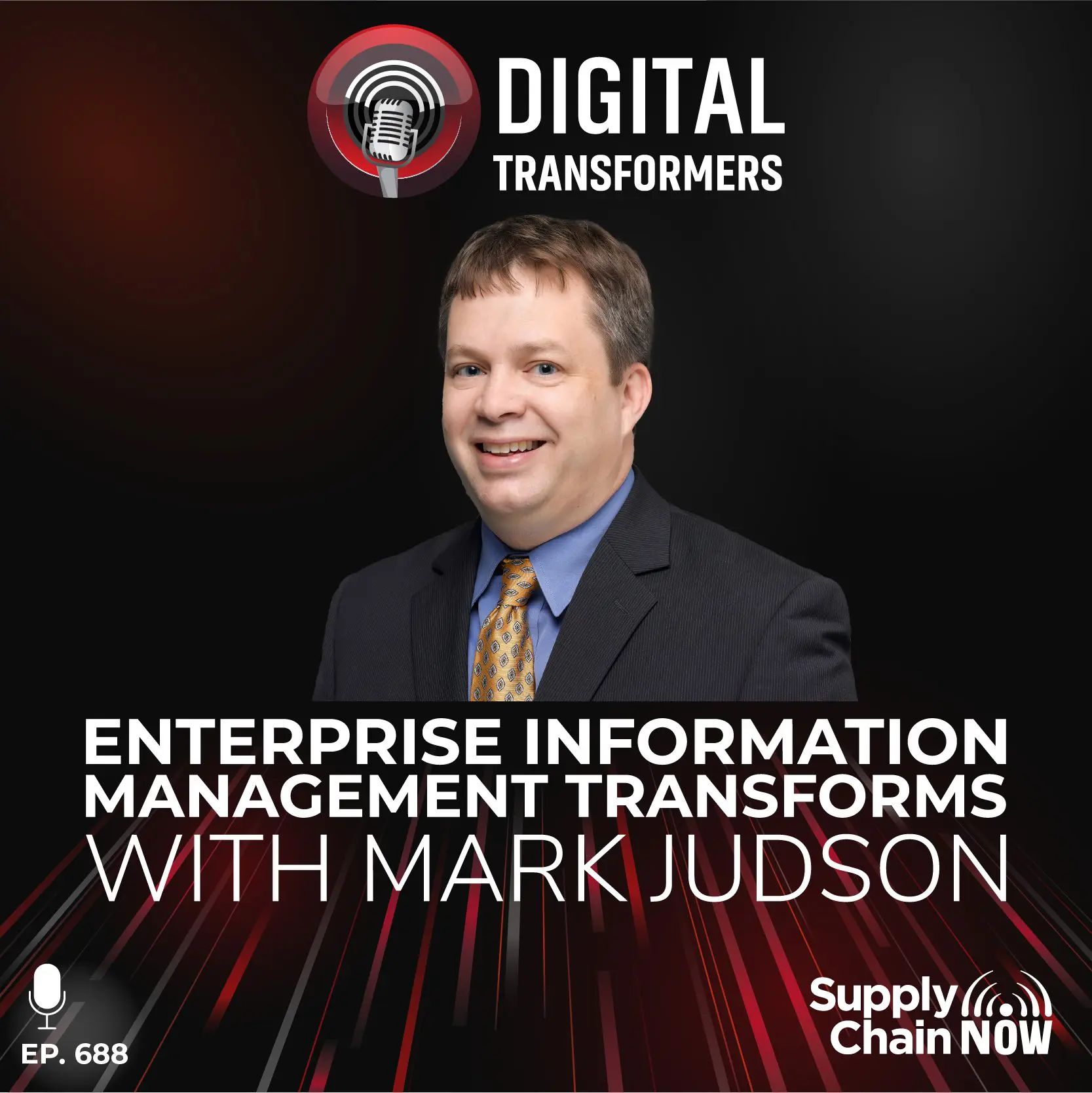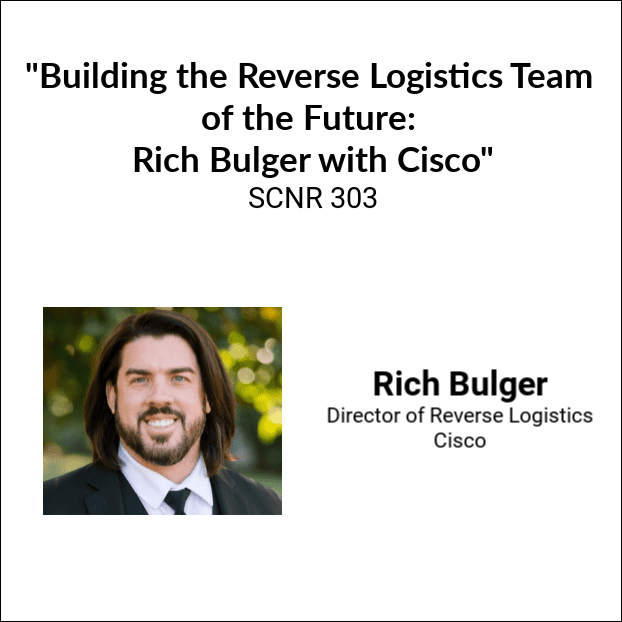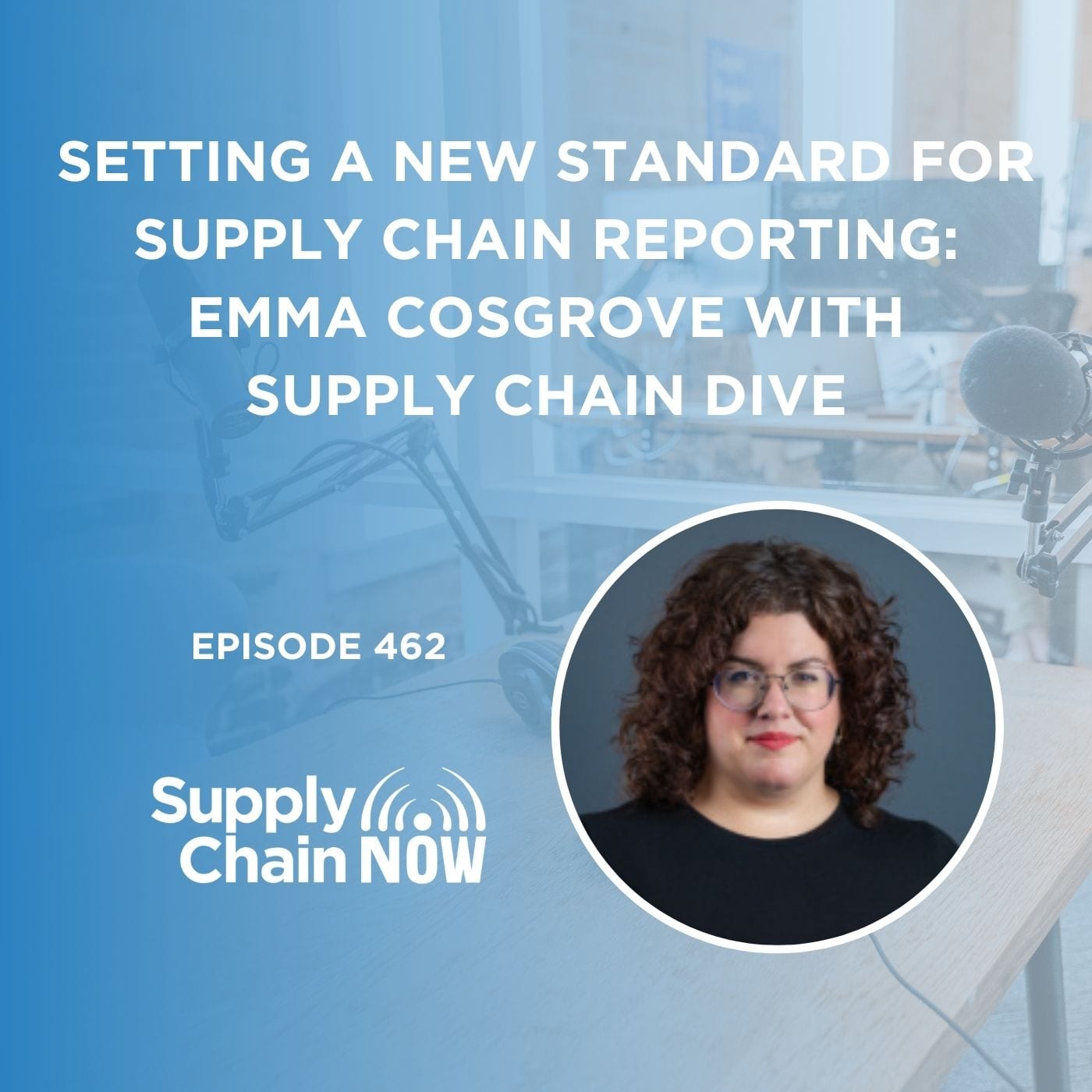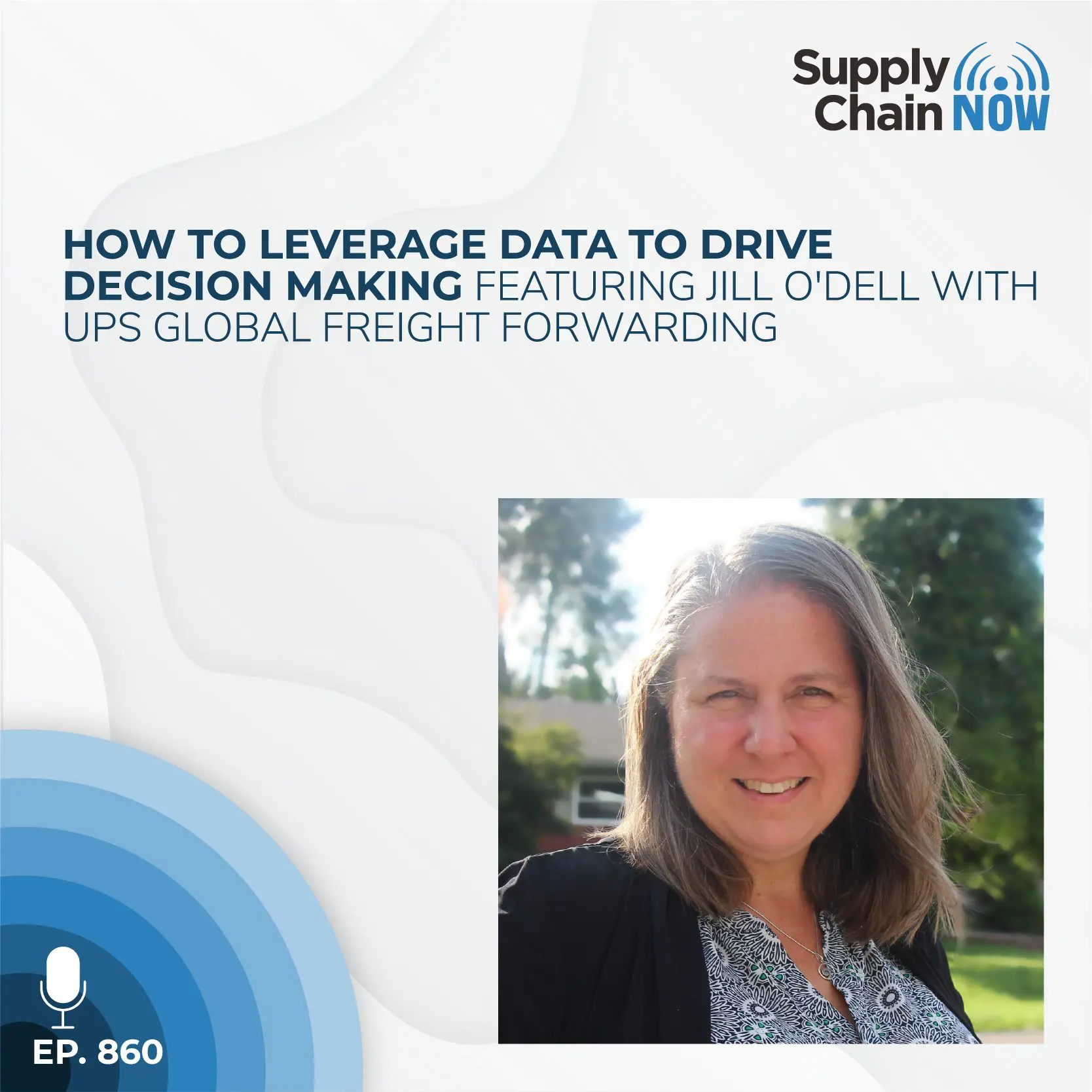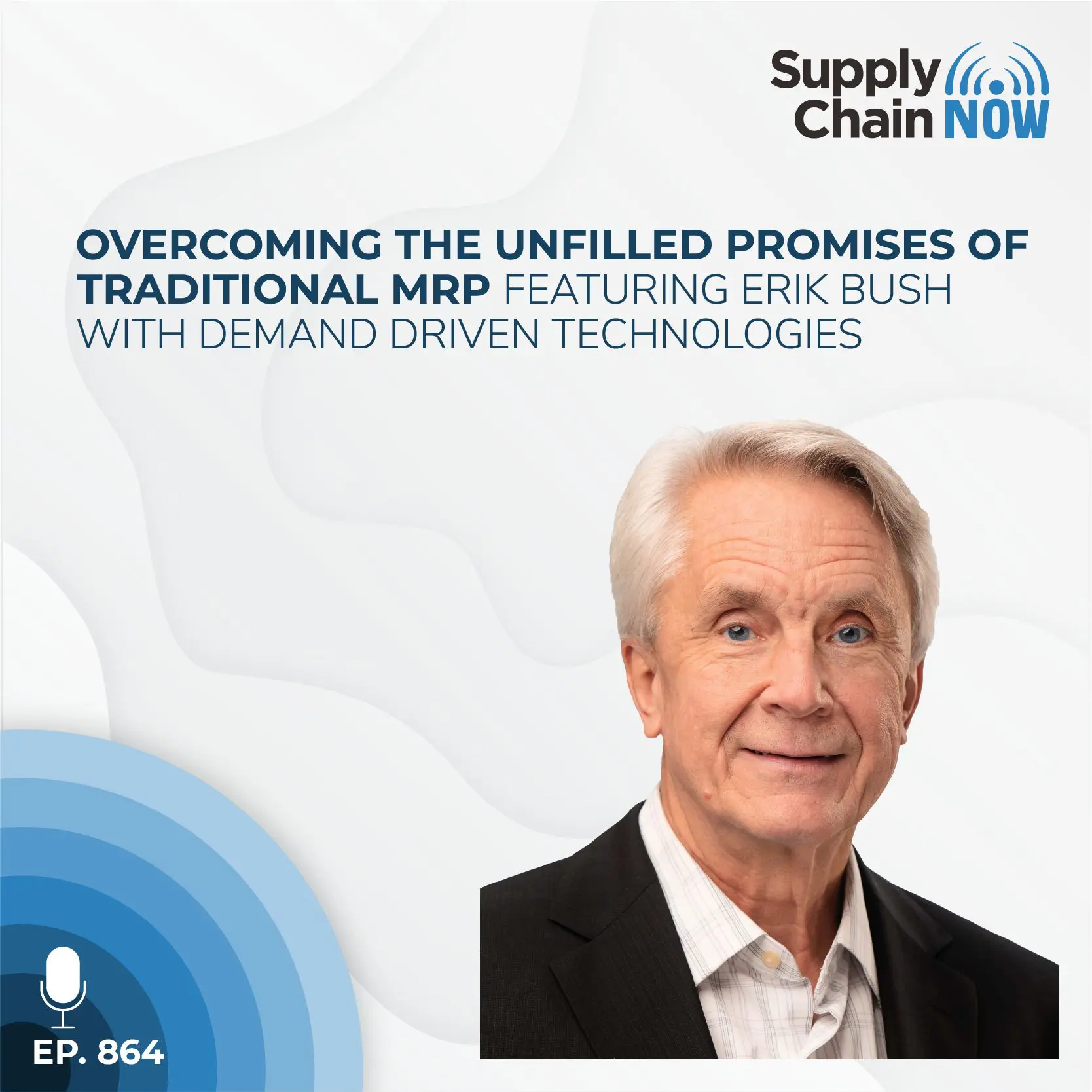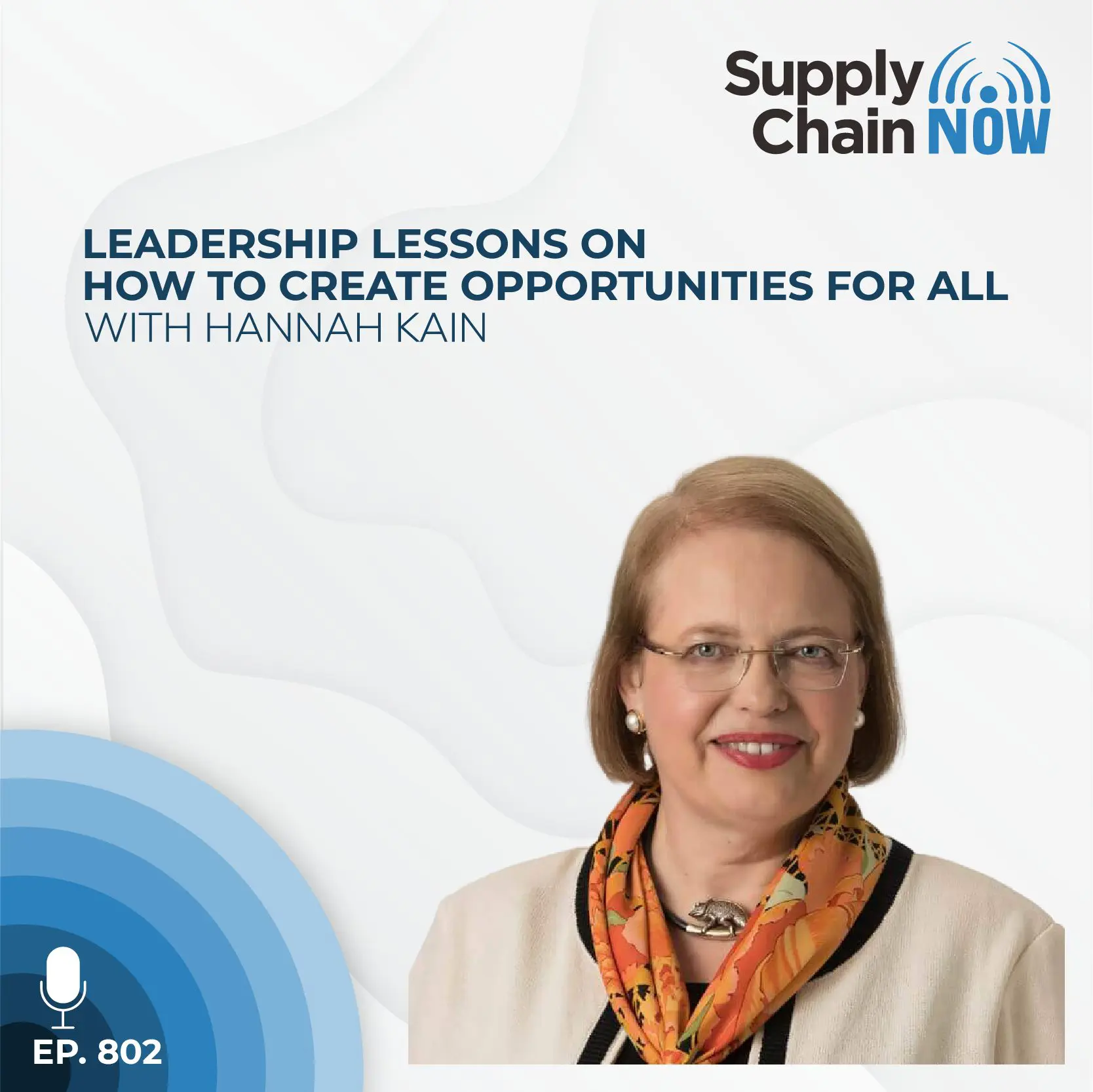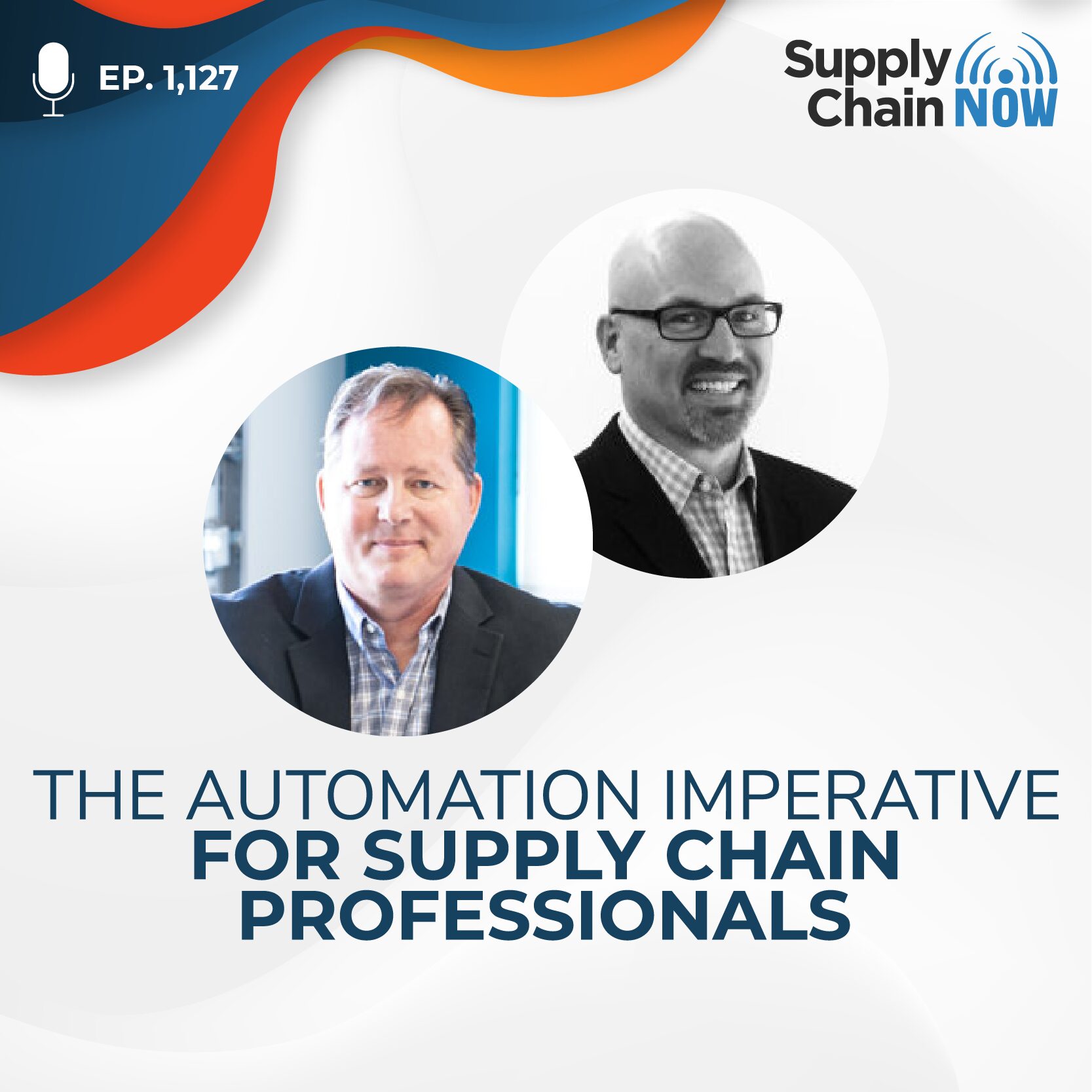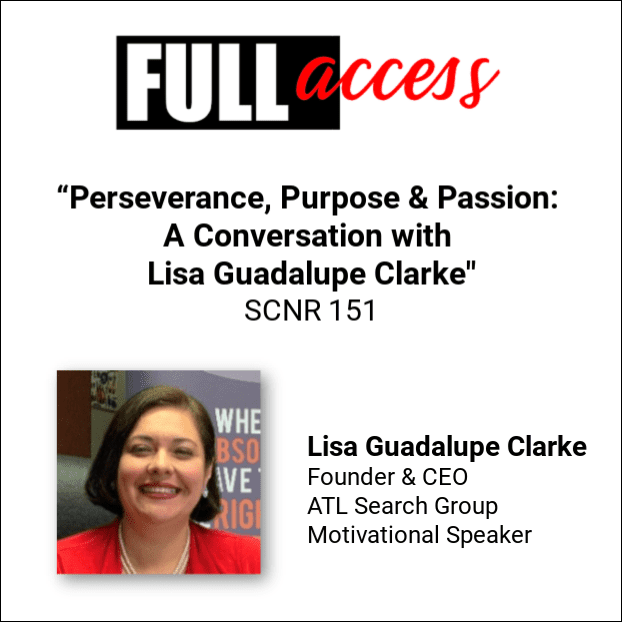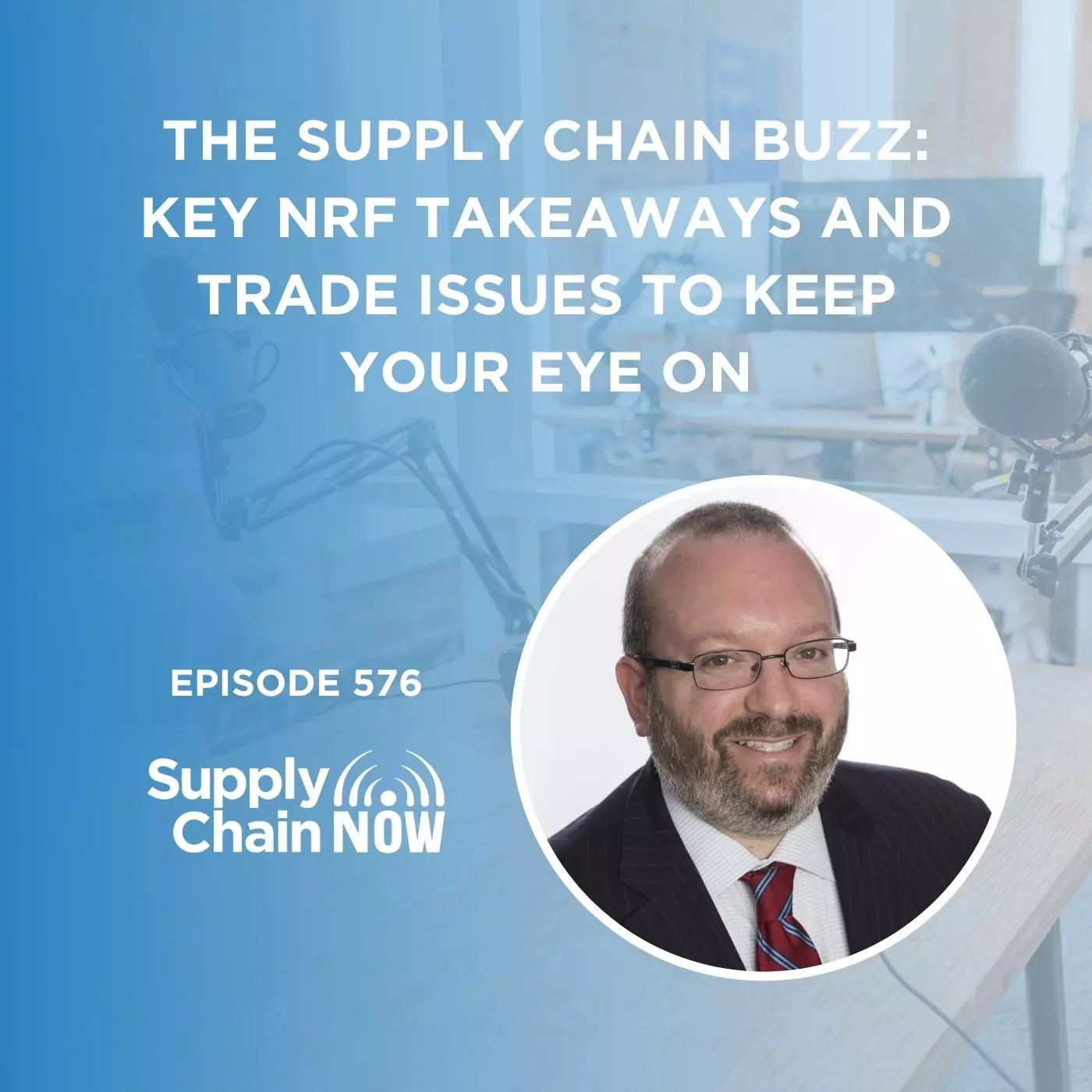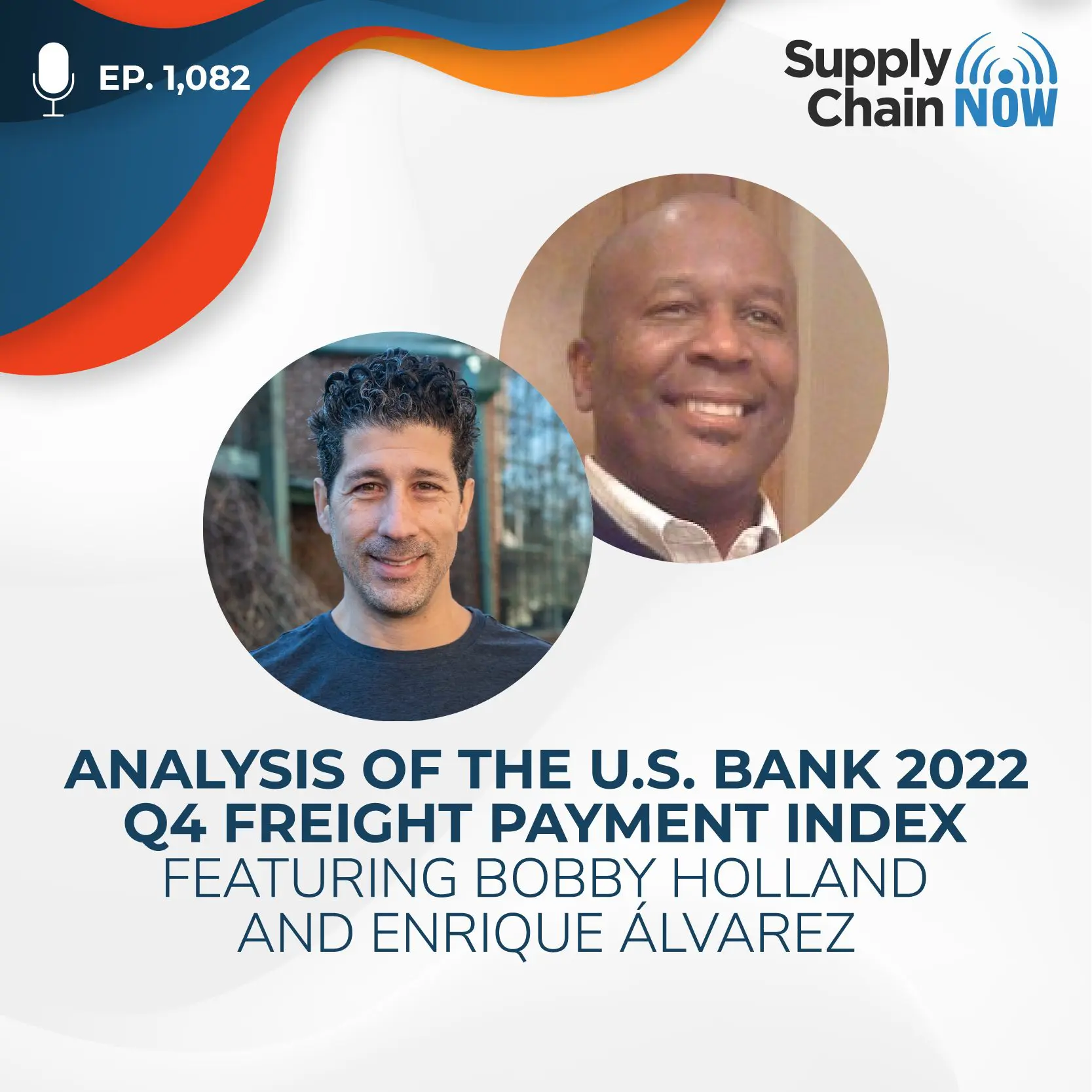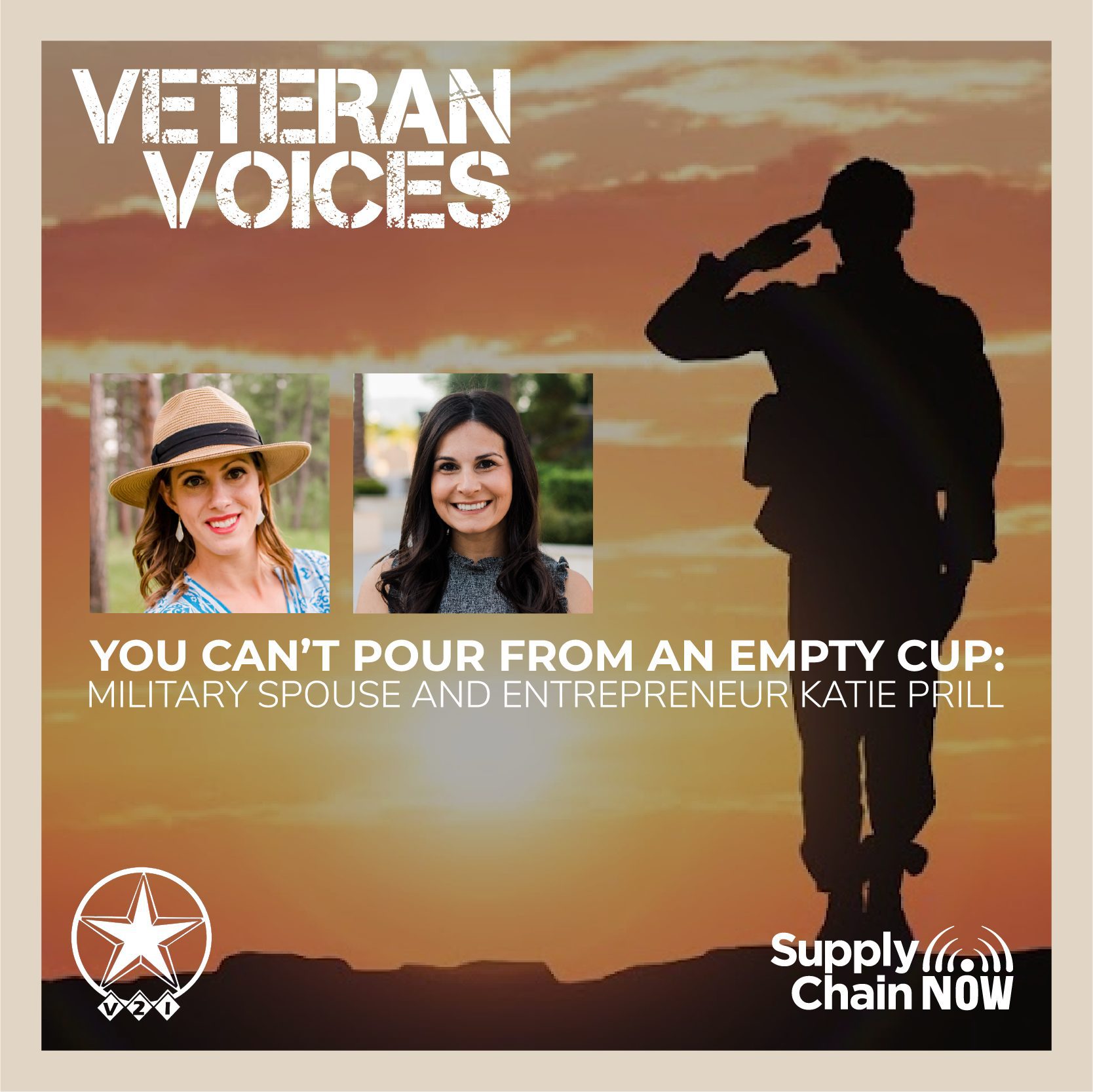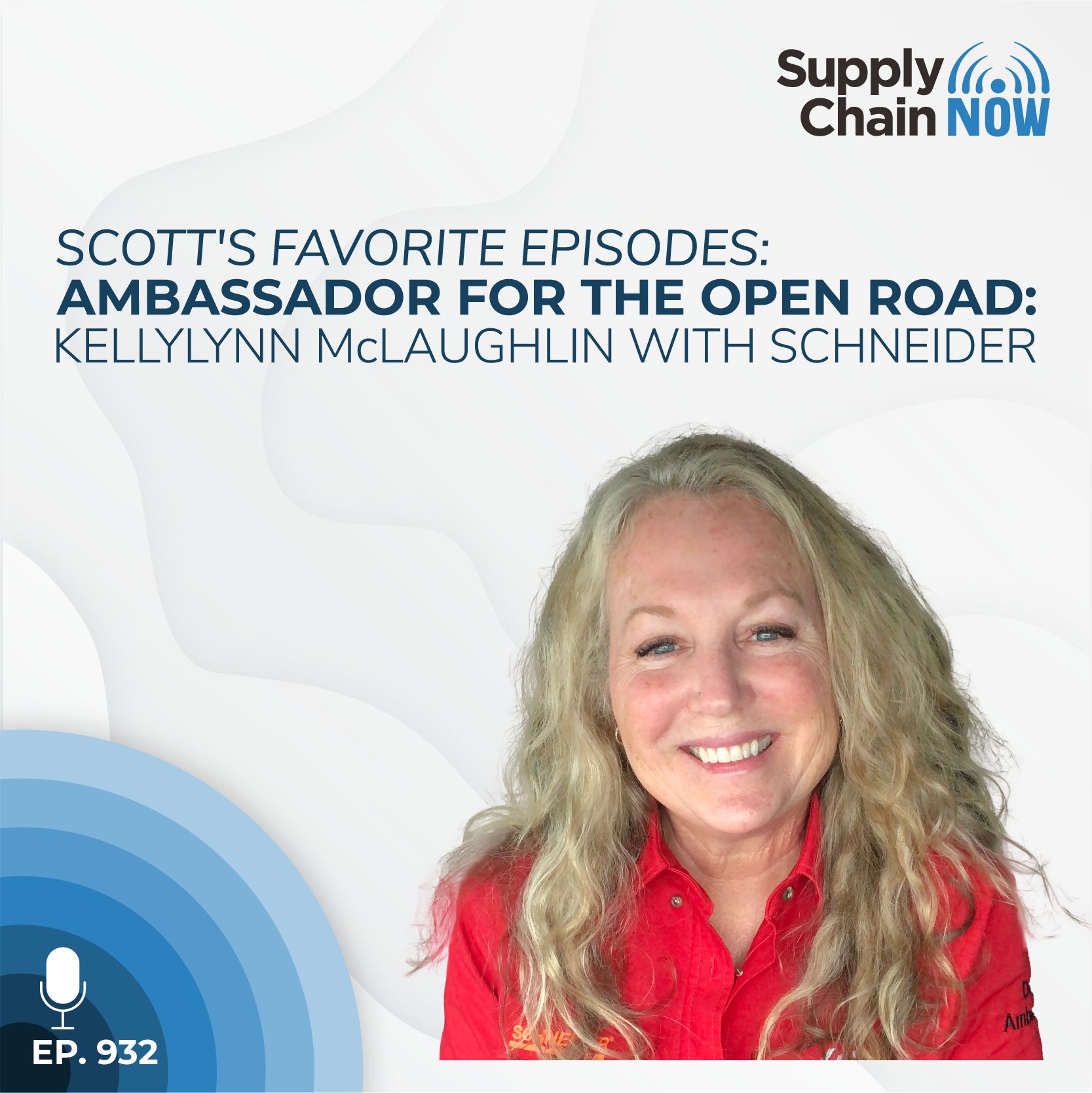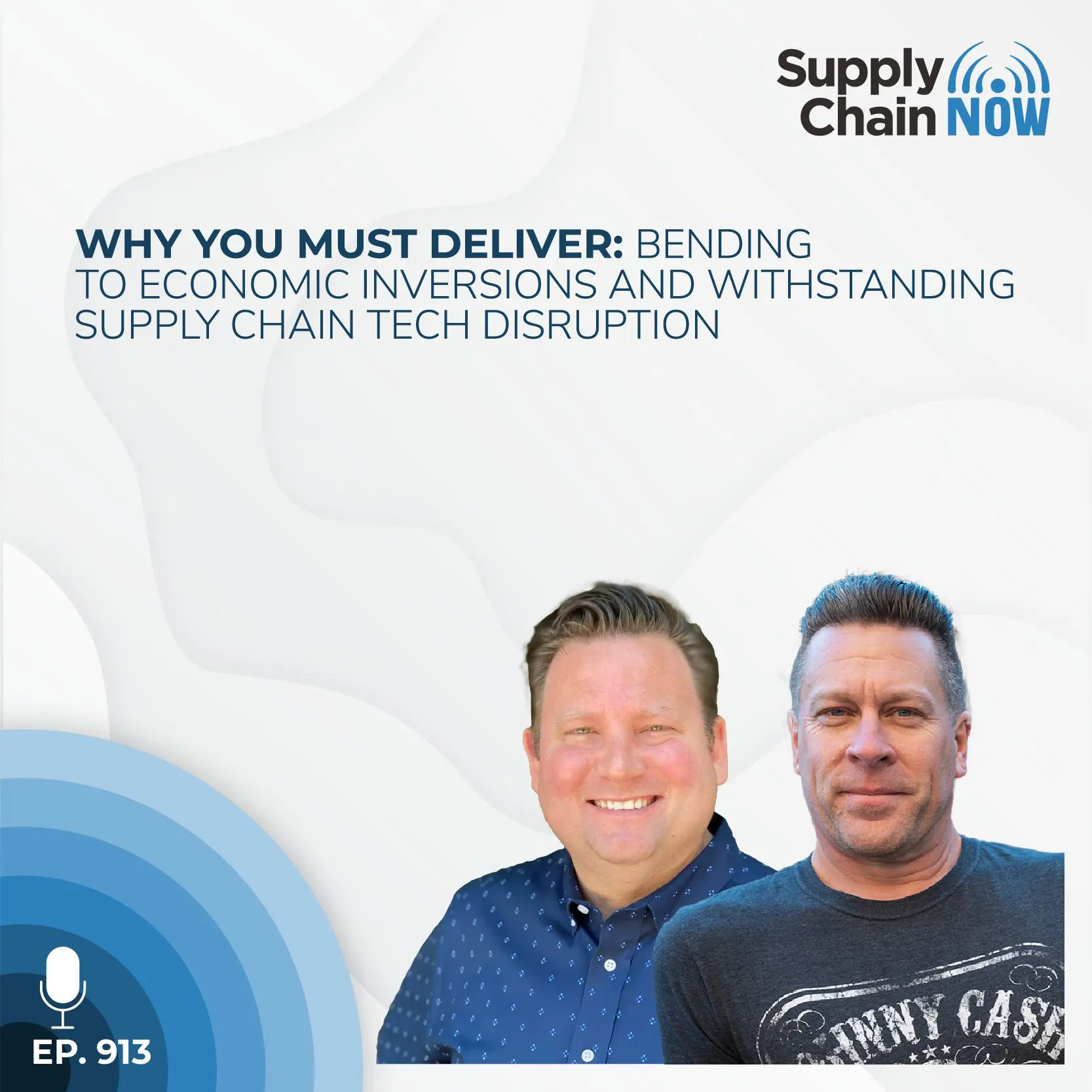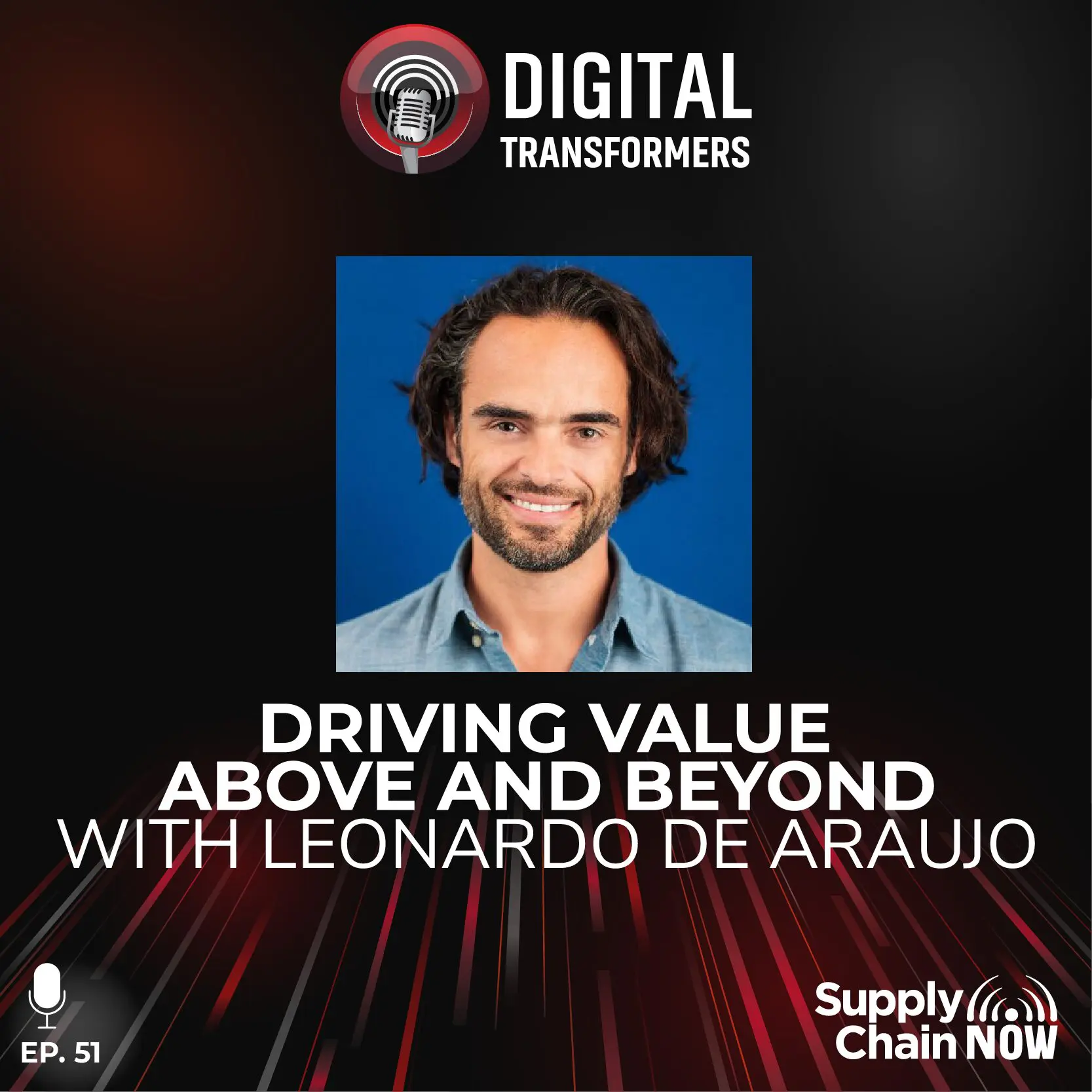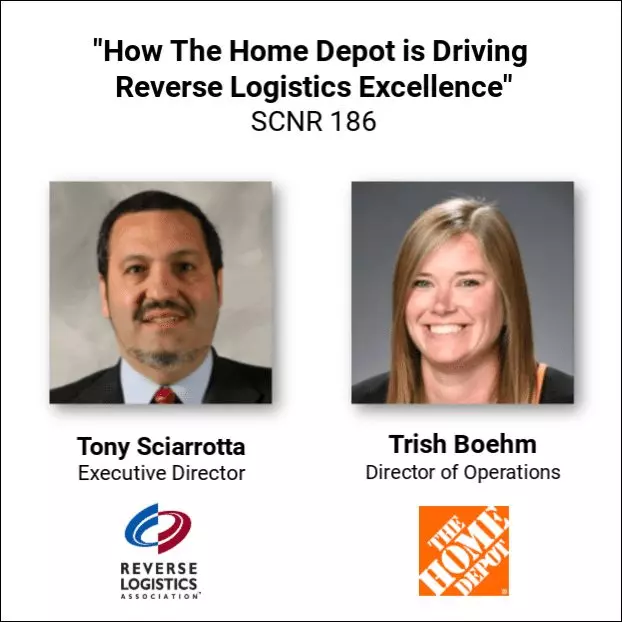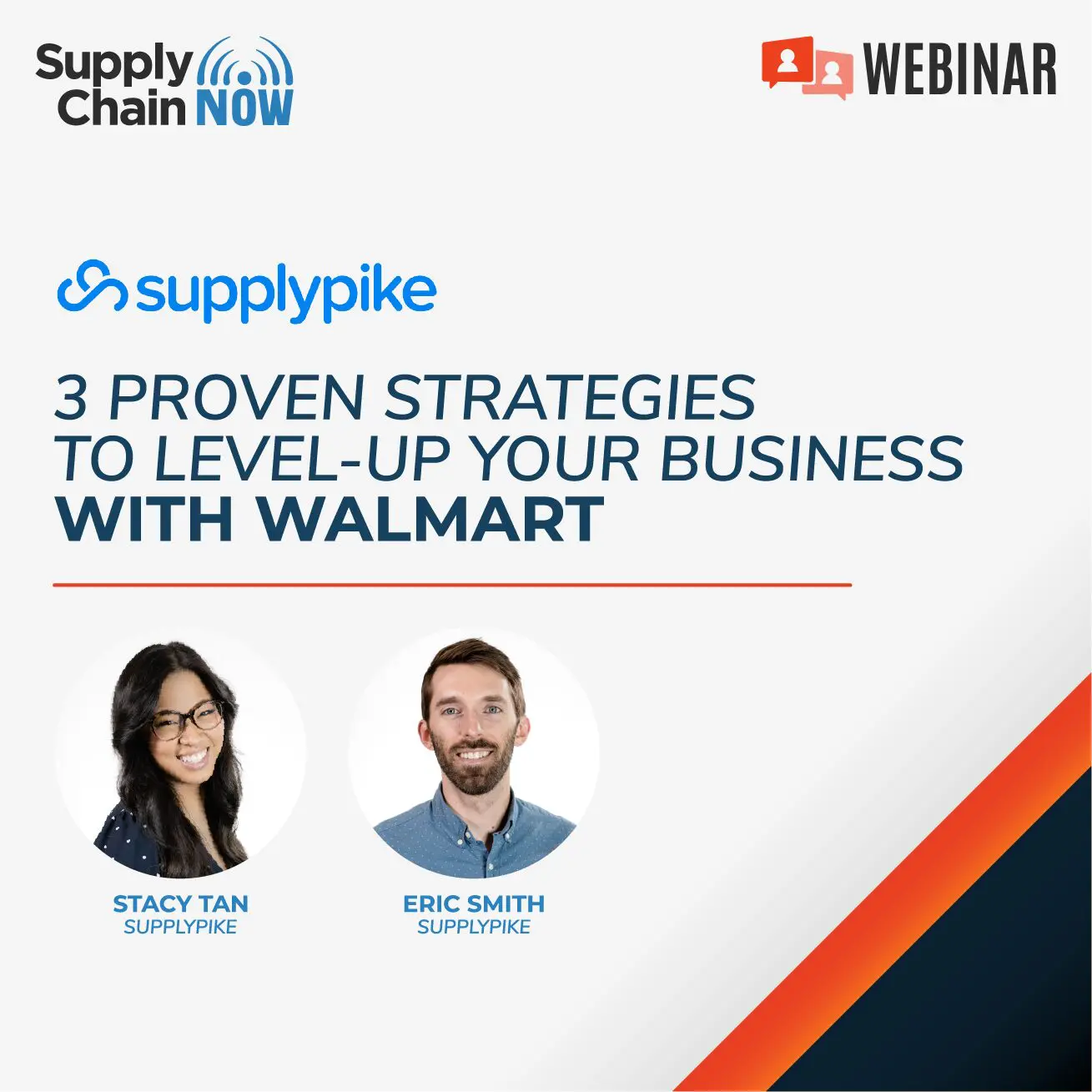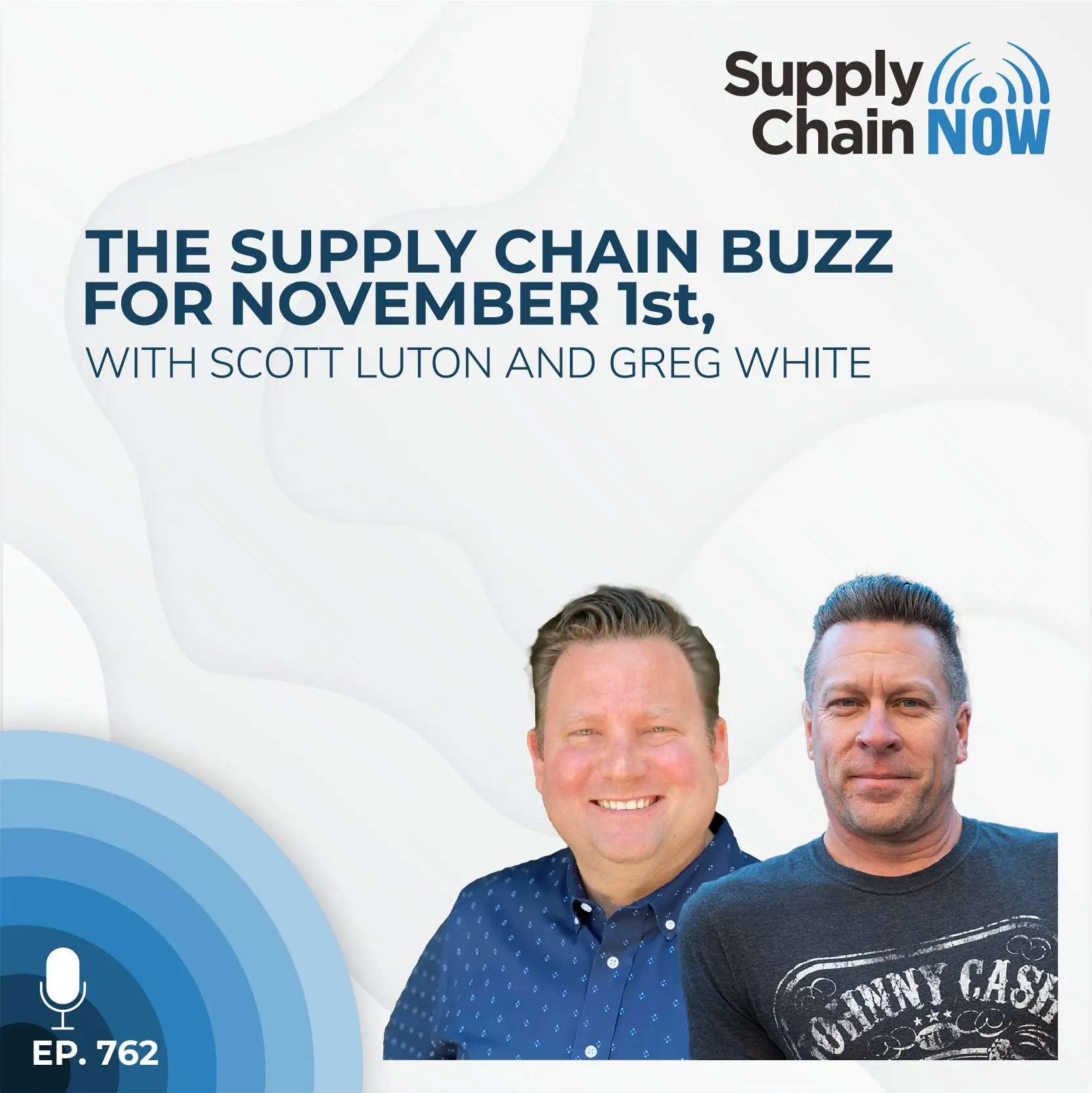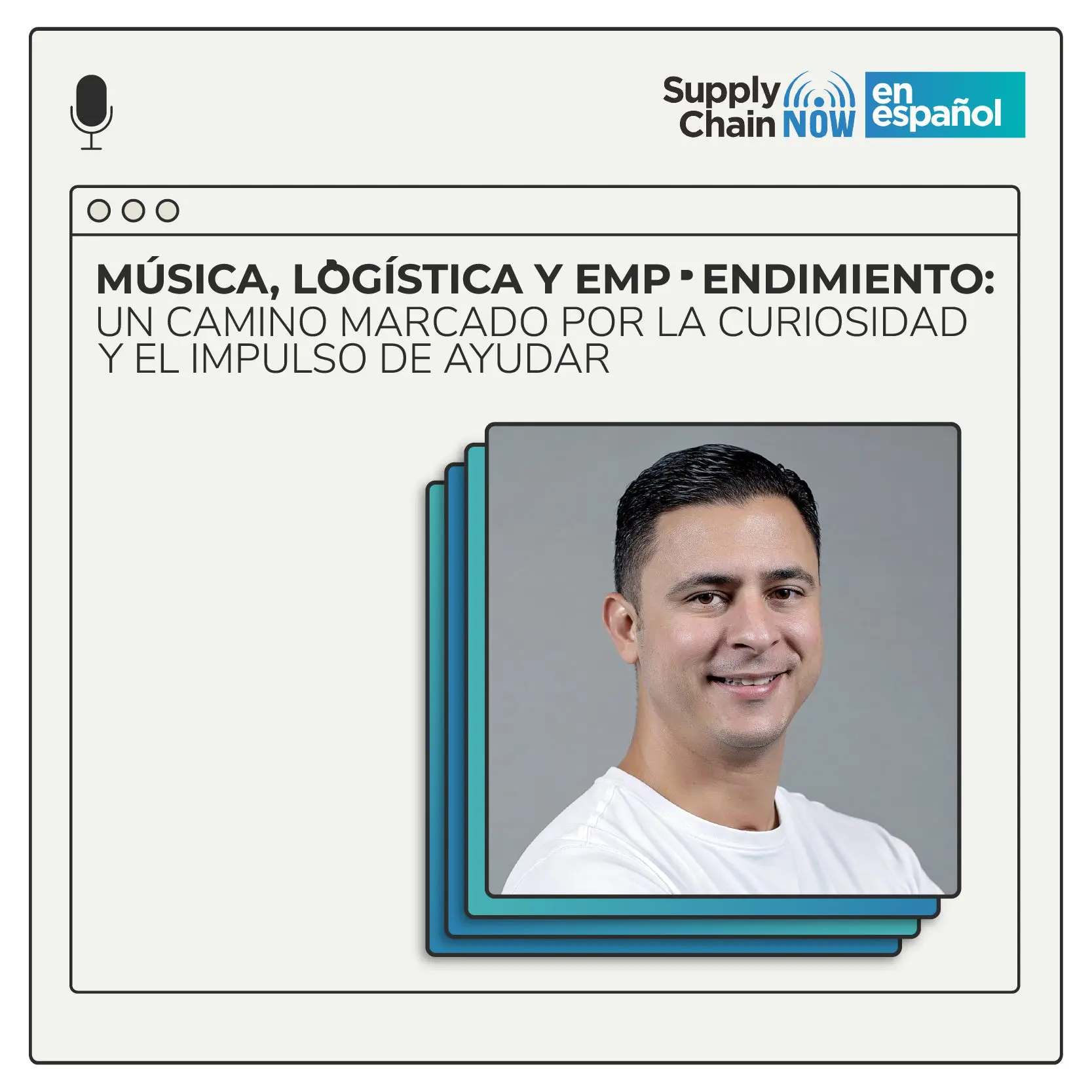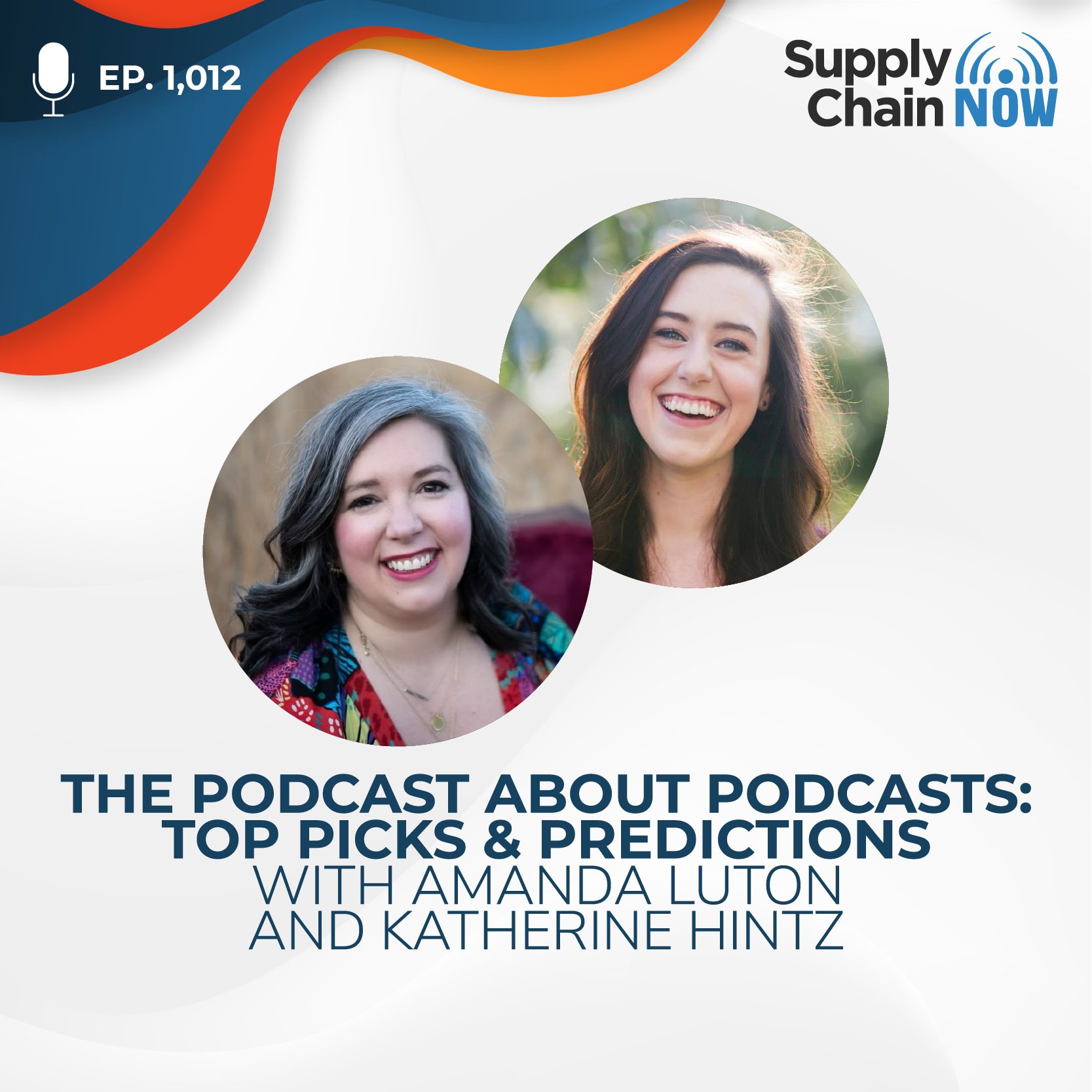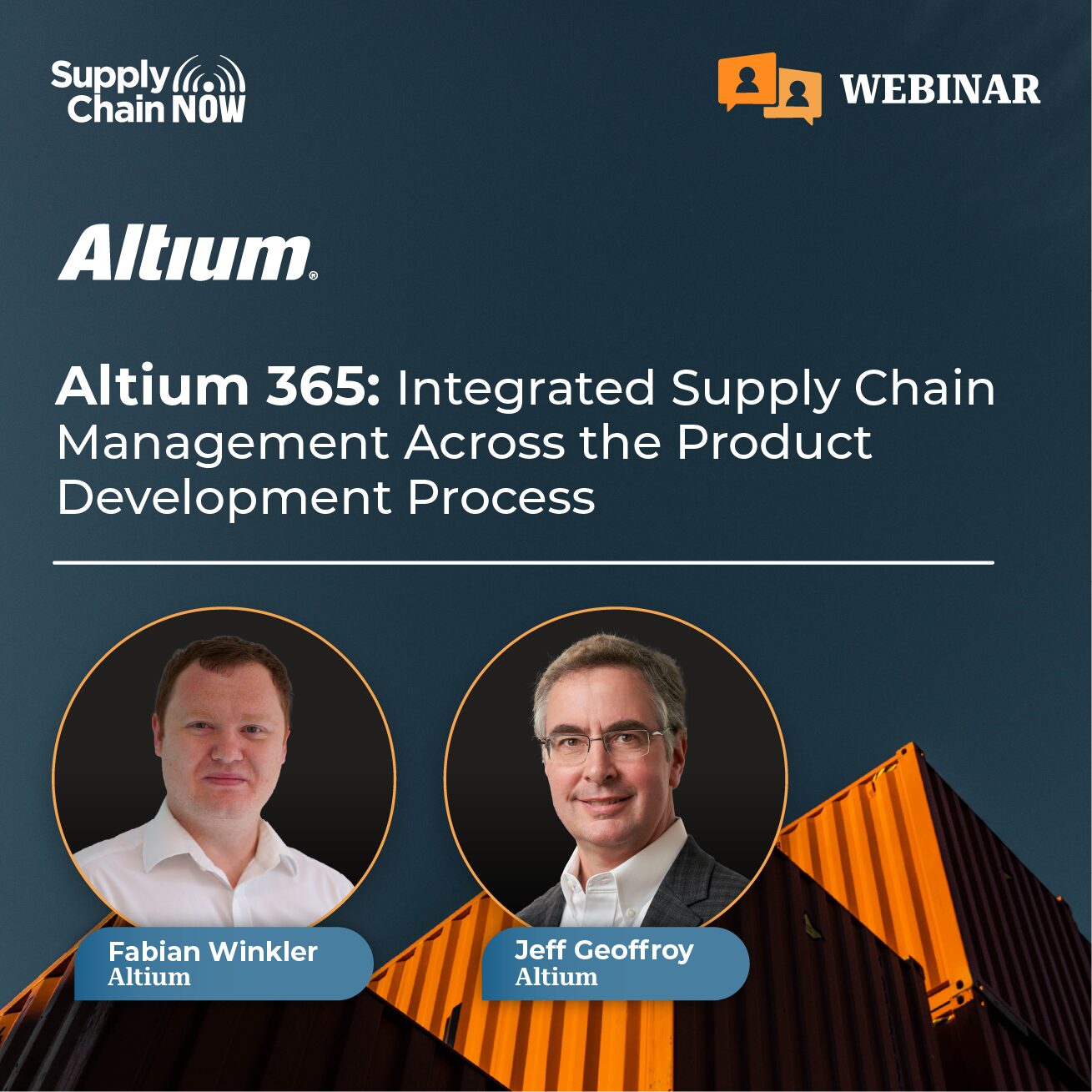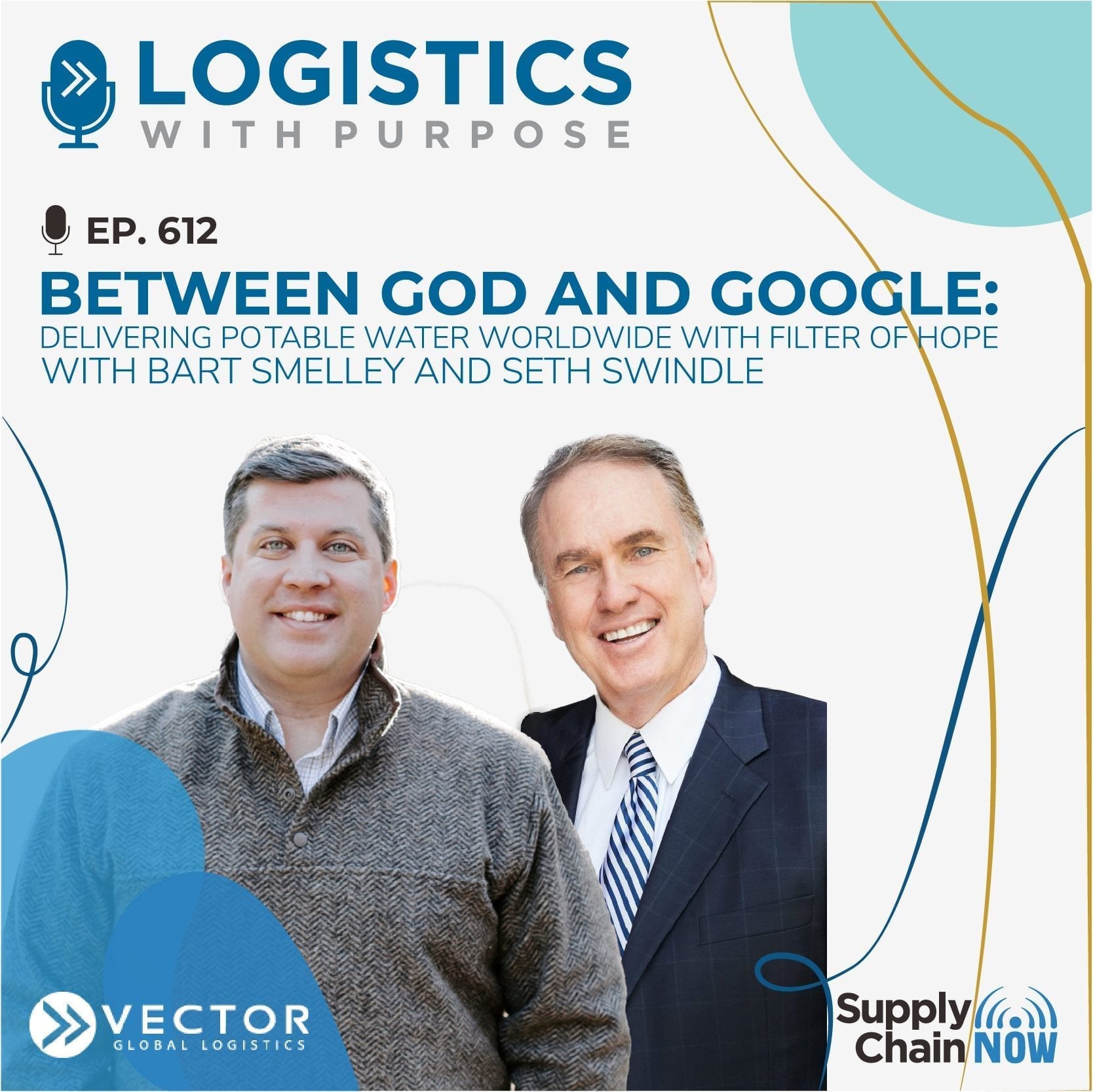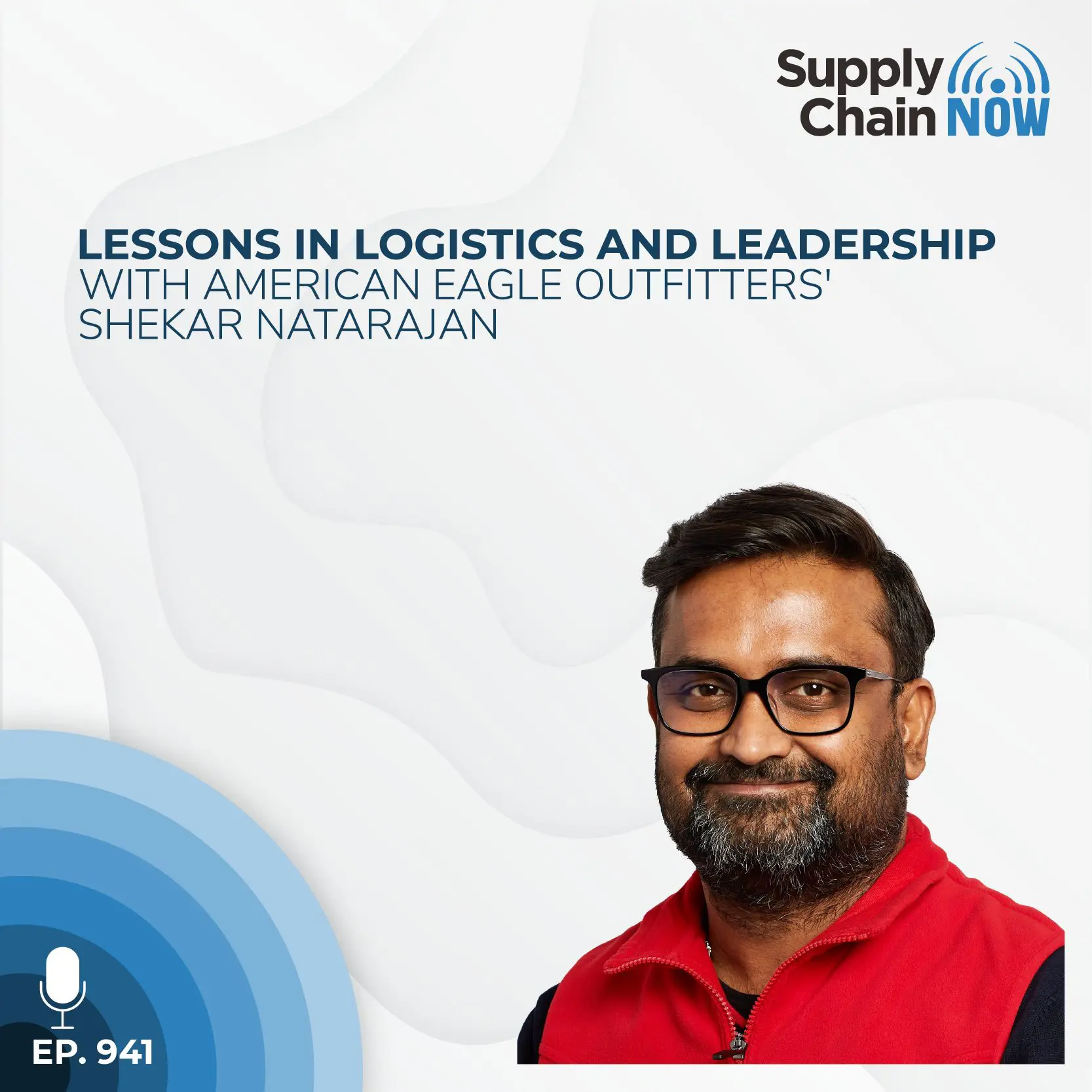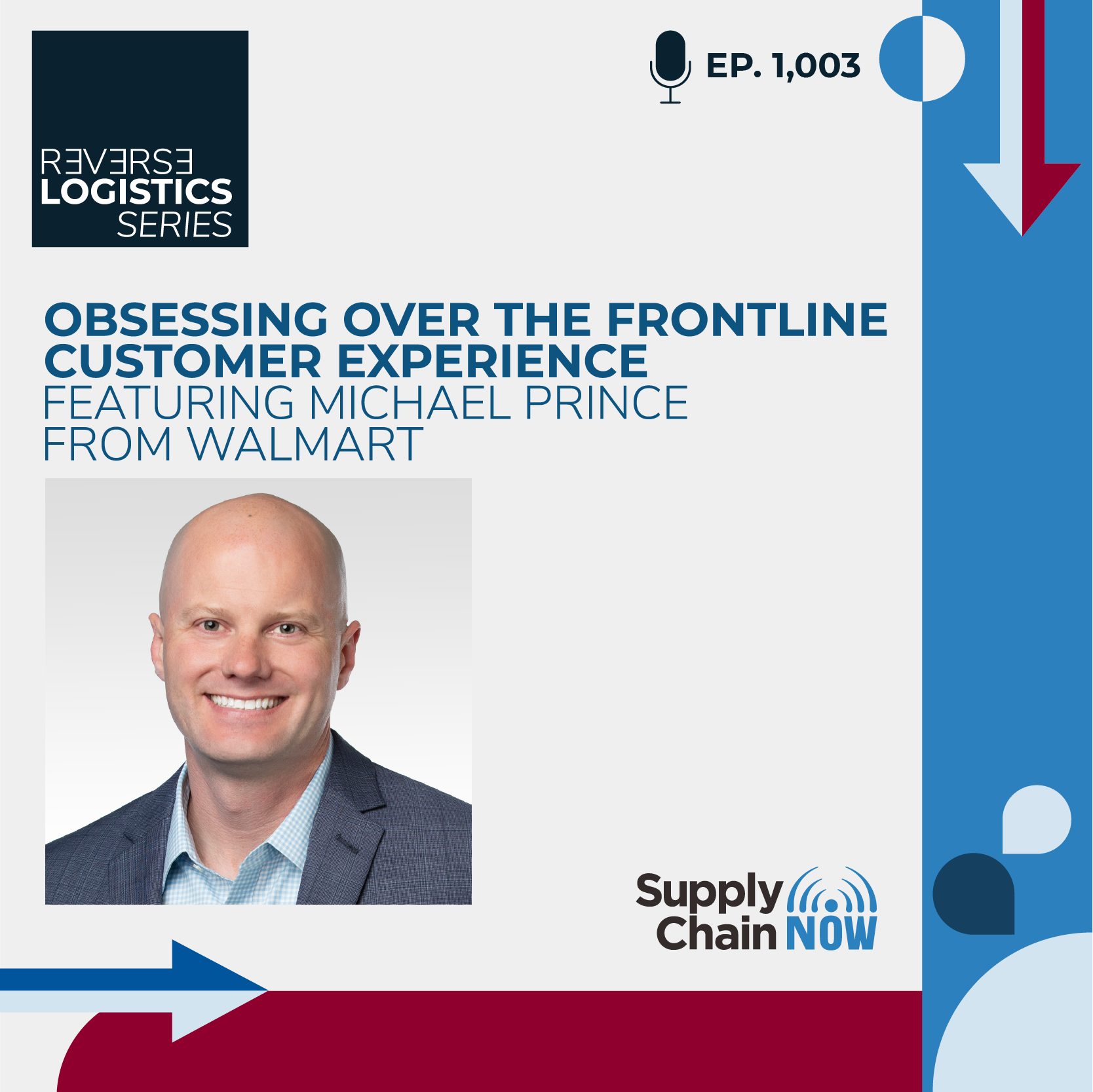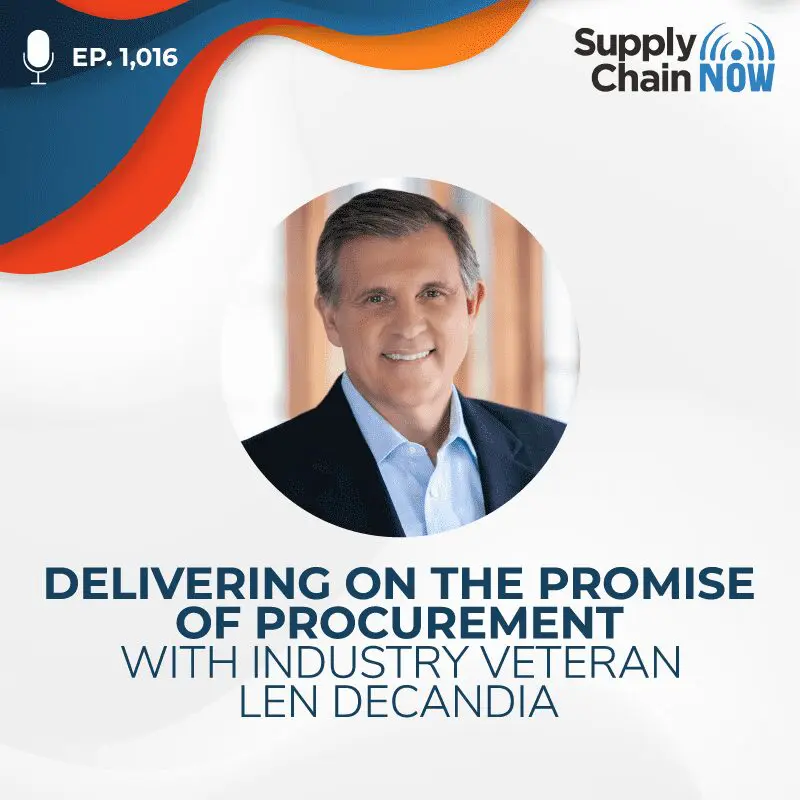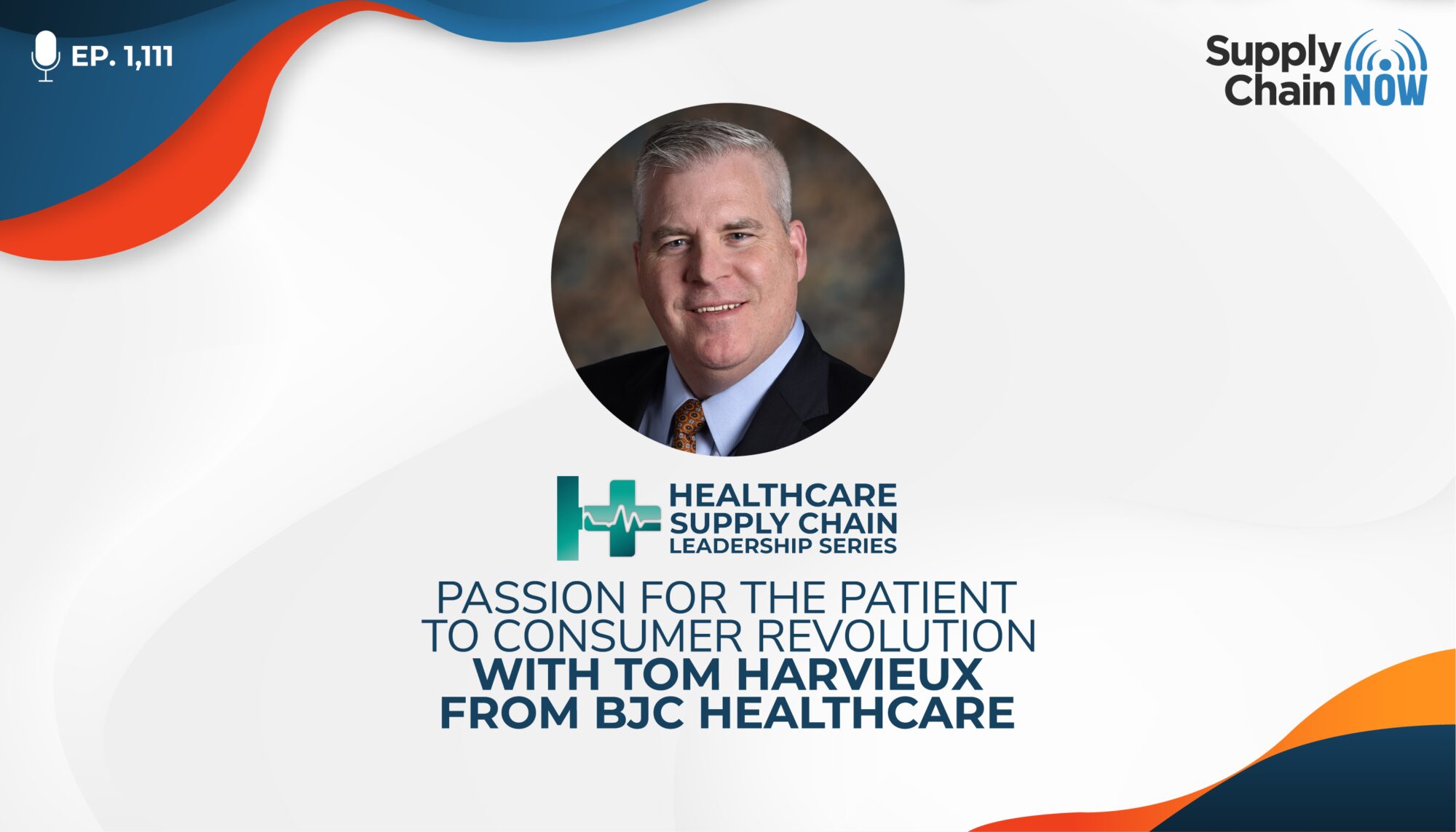
We have to have logistical infrastructure that can be very nimble, very supportive, and make sure we deliver care, support that care, and give caregivers the tools and equipment they need to provide the best care no matter where you present to our organization.
-Tom Harvieux, Vice President & Chief Supply Chain Officer with BJC Healthcare
Episode Summary
Healthcare supply chains must be agile and cost effective, but all the efficiency in the world cannot guarantee a good patient experience. For that, organizations need to understand what patients expect and work closely with providers to ensure they have what they need for a range of treatment circumstances.
Tom Harvieux is the Vice President and Chief Supply Chain Officer at BJC Healthcare, one of the largest non-profit healthcare organizations in the United States. Tom is responsible for supply chain and logistics strategy, and his team’s achievements were recently recognized with an 8th place ranking in the Gartner Healthcare Supply Chain Top 25 list.
In this interview, Tom joins hosts Scott Luton to discuss:
• How his 22 years of experience in the U.S. Army allowed him to build the leadership and supply chain experience he now applies in the private sector
• The changes he has observed in patient expectations about their healthcare experiences since the COVID-19 pandemic, and how BJC Healthcare is rising to the challenge
• The four pillars he and his team use to guide their work: price performance, service excellence, cost to serve, and team engagement
Episode Transcript
Intro/Outro (00:03):
Welcome to Supply Chain. Now the voice of global supply chain supply chain now focuses on the best in the business for our worldwide audience, the people, the technologies, the best practices, and today’s critical issues, the challenges and opportunities. Stay tuned to hear from Those Making Global Business Happen right here on supply chain now.
Scott Luton (00:31):
Hey. Hey. Good morning, good afternoon, good evening. Scott Luton here with you on Supply Chain. Now welcome to today’s show. Now today’s show, we’re gonna be continuing an important series of interviews that focus on healthcare supply chain leadership. Now you know that there aren’t too many topics that impact everyone more than supply chain and healthcare. We’re delighted to continue this intriguing series here at Supply Chain now with another recognized leader in the healthcare industry. So lemme introduce our featured guests here today. So after spending 22 years in supply chain leadership roles in the military, our guests has spent almost 20 years in supply chain leadership roles in the healthcare industry. Now, in his current role, our guest lead supply chain in logistics strategy for BJC Healthcare, one of the largest nonprofit healthcare organizations in the United States. The organization also was recently recognized with the number eight ranking top 10 in the most recent Gartner Healthcare supply chain Top 25. So I wanna welcome in Tom Harvieux, vice President and Chief Supply Chain Officer with BJC Healthcare. Tom, how you doing?
Tom Harvieux (01:35):
Great, Scott. Glad to be here. Excited to talk today.
Scott Luton (01:38):
Well, hey, I can, I can already tell you’re some of our people. We had a little friendly banter, your, your army a lot, lot more years than I was, uh, in the Air Force. I served as scent in the Air Force. So we had a friendly little, uh, inner service rivalry. And before we dive into all things supply chain here, I wanted, uh, you know, our team was doing a little homework, some intelligence gathering. I’ll, I’ll keep that theme going, uh, on you and some things you’ve been up to. So I hear you’ve been busy sailing the high seas. I wanna talk about this, uh, 55 foot houseboat, renovation and sailing adventure. Tell us more about that. Yeah,
Tom Harvieux (02:09):
Uh, water has always been a passion of mine and, uh, I’ve loved boats my entire life. In 2010, I had the great idea to buy a really old 1973 houseboat. I told my wife, I said, oh, I can fix it up in a couple months and we’ll be on the water and join it in no time. It took me four years to renovate the boat. Wow. I did it from South Dakota. The boat was in Minnesota. So it, it was a four hour drive up. It was a four hour drive home. I worked on it 45 weekends a year for four years. I finally got the boat ready in 2014. We launched it. We used it as a floating cabin in Minnesota. Cause that’s a lot where our family was. And it was on the Mississippi River. Later we moved to St. Louis and we realized we needed a boat down. Okay. So instead of trucking it, we took a 90 day journey, 26 locks, 630 miles by water to move the boat from St. Louis. I mean, from St. Paul, Minnesota to St. Louis. It was a great experience. Really was a trip of a lifetime,
Scott Luton (03:12):
Man. Sounds like it. Now, do you have to be, be like a certified captain to make that kind of trip with that size of a boat?
Tom Harvieux (03:20):
Well, you do if you carry passengers, but if you’re the owner, you can, uh, you can pretty much do anything in a boat.
Scott Luton (03:26):
Okay. So I’m gonna ask you one quick follow up question. Uh, if, if <laugh>, if my significant other Amanda was here, she’d be laughing at this question cuz she knows how incapable I am at building anything. Uh, what was, what was one of the toughest things about the renovation? I mean, 45 weekends, a four year renovation. What was one of the toughest aspects of that?
Tom Harvieux (03:44):
Sometimes I didn’t know what I was doing and I just had to start cutting holes. And I was like, I really hope that this works out because if it doesn’t work out, I just wrecked a couple years worth of projects. The other one, and a short story was I was working on the boat after about three years. I was leveling everything in the boat. I was using the levels. I was doing plums, I was doing all the right things. And then I realized the boat’s on land and it’s not shored up level. Mm-hmm. <affirmative>. So the boat’s not level. So I’ve been trying to level everything in interior to the boat and I realized, well, I, if I would’ve leveled the boat, it’d probably been a really good start. So, uh, that was a big lesson learned from
Scott Luton (04:22):
Love it. And I love the first part of your answer there. Cause I think there’s a lot of supply chain relevance there. Sometimes you just gotta get going and cutting holes and, and, uh, you know, perfect plan later. Um, I wanna shift gears. Um, I wanna talk about your service in the US Army. You retired in 2004 after served more than 22 years. Thank you for that. Uh, I can only imagine all the people, all the impact, all that you did, uh, for all of us here. So what was one of your proudest moments, uh, in your 22 years in the Army?
Tom Harvieux (04:51):
Well, just a ton of proud moments throughout my career. It was just a, it was a opportunity of a lifetime to serve with great leaders, uh, heroes. Um, serving with the people gave me great pride. So, I mean, that’s just the foundational of everything I remember and the work that I did in the military. They’re the reasons I was able to achieve the rank of Sergeant Major. And I, I, that was a great accomplishment in my life. But in particular, I really enjoyed doing large troop movements around the United States or internationally. Being able to do multimodal modal movements of large numbers of soldiers to get from one operation to the next, that those challenges really, uh, brought a lot of pro pride to myself and to my team and my organization. And I’m really proud we never lost a single soldier. So a hundred percent it’s pretty important when you’re dealing with people, man.
Scott Luton (05:45):
A absolutely. And, and, you know, I’m sure there’s plenty of tough days in, in all those troop movements, but I bet there were some wonderful days where you had the spri decor and the camaraderie was just, uh, you know, off the charts. Now, along these same lines, I’m, I’m really glad that your, your response there was really focused on people. You know, I, I shared with you pre-show, we’re very passionate about giving back to our, uh, our veteran community and really in particularly helping them with the transition challenges that we all know about. If you could, Tom, what are a couple of your thoughts about the tremendous career opportunities that global supply chain offers veterans?
Tom Harvieux (06:18):
Well, a lot of the things we do in the military is supply chain. We don’t realize it’s logistics. It’s supply chain, it’s movement. It’s taking care of vehicles, it’s leading people. Um, the military really does a couple things. Well, it invests in leadership, and we always used to say our jobs were to grow leaders and train soldiers. That’s what our job was. And really having those leadership, strong leadership skills is something that’s very transferable to any industry. So I would encourage people to not, uh, overlook what you’ve been invested in by the military and, and take advantage of that because it’s, it’s sorely needed in every industry and, and it shines through when you see it. Mm-hmm. Also, healthcare is, it’s a noble industry. It’s a noble industry. It’s bigger than ourselves. That, that ties back to that selfless service that was a core value for the military. That, that self servers service is really important to service members as they look for the next job and their next career. And it fits really well with, with that. Um, but really around just taking the critical thinking skills that you have developed, being able to solve problems and bring that to the new industry, you’ll shine.
Scott Luton (07:32):
Hmm. Love that, Tom. And, and so hiring managers, if you are late to the party, tapping into our veteran talent pipeline, you’re missing out, uh, tremendously. So reach out. There’s a variety of ways. And then veterans that may be listening to this massive opportunities in supply chain. And I love what Tom said there. Healthcare is a noble mission and for veterans that, that should appeal. I know it appeals to me in many ways. So don’t sleep on the healthcare industry as well, especially where they inter that intersects supply chain and healthcare. Okay. So Tom, I, I know you’ve got so many stories in the 22 years, we have to have you back maybe on our Veteran Voices programming. But I wanna switch gears to, to really the big reason you’re here, I wanna tap into your supply chain expertise. So you joined the award-winning BJC healthcare team in 2018 as Chief Supply Chain Officer. So tell us, if you would, about the organization’s supply chain footprint. So facilities scope, you know, kind of what, uh, what’s the wherewithal there?
Tom Harvieux (08:27):
Absolutely. So BJC Healthcare has 14 hospitals, and we’re located in eastern Missouri and southwest Illinois. Um, we’re around the St. Louis area primarily. We have team compressor comprises of 440 teammate mates. We manage 1.8 billion in non-labor expense management. And we also manage about 150 million worth of inventory that, uh, we, we keep in the organization primarily. Our functions are pretty atypical for healthcare. We manage the sourcing, the utilization management, we, the data and analytics in the contract lifecycle management operations side of our team. We manage inventory, warehousing, distribution, receiving mail, linen, uh, all the services that we provide logistically to the organization. So it’s a, it’s a challenge every day because we have hundreds of thousands of transactions every single day. We have hundreds and thousands of deliveries every day across, uh, all of our facilities. And, uh, striving for our 98, 98 0.5% service level, uh, requires a lot of ordination, a lot of work across the organization,
Scott Luton (09:39):
98.5% service level. Um, and, and going back to just the scale, BJC Healthcare, one of the largest nonprofit healthcare organizations in the us but you’re also, I I believe one of the largest employers in Missouri. Is that right?
Tom Harvieux (09:51):
We are the largest 30,000 employees. So we’re the largest employee in Missouri,
Scott Luton (09:56):
Man. So let’s talk about, you know, with all this recognition you’ve received, uh, and, uh, the highs and and success that, that you are driving there, you talked about the Gartner ranking, uh, number eight, top 10 time you, you broke the top 10. What’s a few critical factors you believe that fuels your team’s success?
Tom Harvieux (10:16):
I think it all starts with having a good strategy to line the team on where you’re going and what you need to accomplish for the organization. Um, the Covid Pandemic really took us on a side journey over the last couple years, but I’m really proud that we continue to advance our strategic objectives, even though we are in the middle of trying to source and secure p p e protective, personal protective equipment for our caregivers across the organization. But we really focus our work around four pillars. The four pillars are price, performance, and that’s how effectively we, we acquire products and services from the marketplace. Um, we look at cost savings and cost avoidance, uh, particularly with the inflationary market, but we really focus on those two areas. And then we also make sure we have strong commercial and legal playbooks that we’re able to operationalize our work, um, and be more effective at scale while we’re doing that work.
Tom Harvieux (11:11):
The second pillar is service excellence. And service excellence is really around how effectively we deliver service to the organization. We use standard work. We’re high reliability, we really focus on continuous improvement to do that work. The third part of our, our strategy is that we’re, uh, focused on the cost to serve. So what does it cost to deliver those services excellently, uh, superbly to the organization? And we look at using lean, we have, um, combine systems. We use, uh, workflow, standardized workflow to really drive that. It ties back to the high reliability, but we really focus on delivering excellent service to the organization in a cost effective manner. And that requires us to really, really focus on variation reduction. If there’s unwarranted variation, we really need to target and, and focus on that. Mm-hmm. <affirmative>, the last is how we engage our customers and our stakeholders and our team, and making sure that our teams are engaged.
Tom Harvieux (12:04):
We have the right talent and we’re engaging our stakeholders, we’re communicating effectively. And that kind of ties it all together, that people understand what we’re doing, where we’re going, and how we’re gonna get there. Um, really, we, we do a lot of collaboration outside of healthcare because we don’t have a large company like a Walmart or an Amazon that can really consolidate a lot of the work that we need to do. So we need to do that in a collaborative way. Um, so we’ve joined a group called herc and SM I and those groups really focus on how do we get suppliers and providers together at a table to solve common problems and then scale them across the industry. So it’s exciting work not only internal to our organization, but the work that, uh, our health systems and supplier partners are doing collaboratively around the industry to really make the healthcare supply chain better.
Scott Luton (12:55):
Quick follow up question before we start talking about, um, this a revolution, uh, a phrase I’ve seen you use. So you joined in 2018, just, you know, not long before the pandemic, the alignment you talk about, and then the four pillars you talk about. Um, can you talk to us about how important leaning on that alignment and those four pillars and, and the resiliency? It’s what I’m hearing that you, that you had already baked into the team, baked into the organization, and how you leaned on that to navigate through this incredibly uniquely challenging time. We’ve, we’ve all been through
Tom Harvieux (13:27):
It. It was really important, um, that we had a really good structure and I was really fortunate to be in my organization prior to the pandemic. Um, I had about a year to start our work with our team, get to know the team and form relationships before we kind of went into that full on knife fight. Uh, and starting in 2020 with that, uh, we leaned on, our sourcing team became more nimble. We engaged our stakeholders to make decisions that previously would take us weeks to make decisions around. We were able to make decisions in minutes or hours, um, around product substitutions, uh, alternative things that we could do, um, ways to work around challenges on product shortages. Looking at how we can make sure that we can protect our patients and protect our caregivers was always top of mind. And then our operations team around the service delivery really focused on how do they get the best product to the patient or to the caregiver as fast as possible, and to make sure that we never ran out.
Tom Harvieux (14:25):
And that’s a, a huge source of pride for our team that we never ran out of the equipment that we needed to protect our staff in this. It was a lot of challenges to do that, but, um, doing that, so most pillars really guided us, not only how we went to market and were nimble on how we sourced and how we collaborated on buying the products, but how we delivered ’em and how we ensured that we were able to be nimble by standing up new units, taking other units down, repurposing some clinical areas, and then repurposing the equipment and the supplies to deliver care for the patients. That presented, uh, with Covid
Scott Luton (14:59):
Never ran out. That kind of, when, when I heard. So y’all, I’m sure y’all celebrate that kind of reminds me of your, what you’re talking about, your army career. Everyone got where they were going, no one was left behind. So it seems like you got a knack for that Tom. Um, but kidding aside, I I really wanna, uh, you know, my mom spent over 20 years working in healthcare. Um, spent, spent a chunk of that as a certified diabetes educator. And I’ll tell you as, as much as our team celebrates what, uh, the global supply chain workforce did through the pandemic to keep us all as consumers and as as customers, and you name it, moving forward, I’ll tell you, healthcare, it is amazing the mountains that our global healthcare, um, uh, community did. So if for all of our BJC healthcare team members listening or any, uh, healthcare supply chain practitioners are otherwise listening, Hey, thank you for all that you did in recent years. I can only imagine the challenges. All right. So Tom, I was doing a little intelligence gathering and I saw this phrase you’ve used previously, patient to consumer revolution. You’ve got a pa uh, a passion for the patient to consumer revolution. Tell us what you mean by that.
Tom Harvieux (16:06):
Patients are changing and patients we used to go, you go to your doctor and you went to the clinic and you took care of your care that you needed or you went to the hospital. Um, patients have learned through retail and through all the aspects of their life that there really are a consumer. So they’re starting to view healthcare as a consumer, not as a patient. And what that means for us is that the patient will look at what’s the best way to get the care that they need. So if your child has pink eye, you don’t want to go to a major medical center. You want to be able to do a virtual visit, and you wanna be able to get, uh, your prescription filled and be back at the house in 20 minutes. You want, if you need urgent care, you want to go to the urgent care in your, in your neighborhood.
Tom Harvieux (16:52):
You don’t want to drive to 15, 20 miles away to get to a hospital to look at that. You want a convenient, uh, care. It’s convenient, it’s cost effective. If you have cancer or a major life, um, a major life event, you’re gonna wanna go to the best. You’re gonna wanna find the absolute best doctor that, and the best physician that’s gonna be able to take care of you and solve your critical problem. And then a lot of care is gonna be delivered in the home. People are gonna be expecting to stay in their home to deliver the care. Now that patient can present different ways on different days. So Scott, you’re, you and your family can present to the urgent care on one day and to a week later that you could be at the major medical center. So that care should be the scene, no matter what door you walk in, every door that you walk in, you should receive the same exceptional care.
Tom Harvieux (17:43):
And that’s what our organization is committed to. Now, to do that, we have to have logistical infrastructure that can be very nimble, very supportive, and make sure that we deliver care, we support that care, and we give the caregivers the tools and the equipment that they need to deliver on that mission of providing the best care no matter where you present to our organization. Um, that comes a lot of complexities because we’re, we, we were designed to, to resupply hospitals. That’s what we have been doing for 20 years. So now we’re starting to revet how do we deliver, uh, logistics support to the home. So if you’re on, uh, lifesaving machine or you need replacement of wound dressings, how do you get those in a timely manner that’s efficient, that’s reliable, that gets you what you need? And then making sure that if it’s a, requires support from a caregiver to be in the house, then our home healthcare team to make sure that happens. So it’s a, it’s a really exciting change, but it’s really moving from a non-traditional model to a new model based on the customer’s expectation of how everything that they do in their life and how they present and how they buy. Um, it’s, it’s coming to healthcare. It’s coming fast.
Scott Luton (18:55):
Well, I really admire your passion for meeting that customer where they are now as it evolves and, and, and the revolution takes place. Cuz you’re absolutely right. I hate saying the Amazon effect cause it’s so cliche, but it really is the best description of kind of what we expect here in 2023 and for years now, really as consumers, and I’m sure you are, as you point out, you’re seeing that in healthcare. Um, in fact, I was just talking yesterday to a, a, a, a dear friend of mine and he was talking about, um, telemedicine and how he was fighting the pollens. Well, like I’ve been here lately and, uh, he was talking with a doctor on, on, on a Sunday from home and getting the Medica prescriptions and what he needs on a Sunday. Now, he may have said that he thinks a doctor might have been on the golf course as he was treating, uh, Craig, I’m kidding. But telemedicine, I bet it’s a big part of that revolution. Any comment there before I move on to continuous improvement?
Tom Harvieux (19:48):
Yeah. Is a big part. Um, especially for families and patients that live a long way from a medical center. And if you could have your follow up care, your primary care or simple visit done, you don’t have to drive hour, two hours, three hours to get that care. That’s a, that’s a big, that’s a big impact on the families and the patients that we serve. So it’s here to stay.
Scott Luton (20:09):
Yeah. Agreed. Agreed. Um, all right. So let’s talk about continuous improvement. One of my favorite topics here, uh, one of our core values, there’s no finish line here at supply chain. Now, when it comes to continuous improvement, I feel that in my bones, it’s in our dna. N a you alluded to many, uh, lean and, and, um, many other aspects of continuous improvement as you’re walking us through those four pillars. So what, Tom, what is one of your supply chain teams top continuous improvement objectives this year?
Tom Harvieux (20:38):
Sure. Um, one of our primary objectives is to simplify the supply chain because by simplifying the supply chain, we start to make care delivery easier. We reduce waste and we become more reliable. This is not easy. It’s a very complicated to make something easy. And by, to make it simple, we’re really looking, we have a primary channel. We just recently in the last year open to 400,000 square foot distribution facility. Now our goal is to move 95% of our purchases through that building. What that does for us is caregivers know it’s easy to order out of the building. We have 60 days of inventory there, so they don’t have to worry about running out. It comes the next day in a low unit measure without cardboard. Um, we’re able to work on our suppliers to actually reduce orders that we might have placed 15, 20, a hundred orders a day outta each of our hospitals back to our suppliers. Now we can place an order once a week so we can consolidate down to truckload versus parcel shipments. It reduces the cardboard and the, and carbon emissions coming into the organization. So it builds on our e s g goals as an organization, but the whole strategist wraps around simplifying the supply chain and all the waste falls out.
Scott Luton (21:57):
Man, I love that. And going back to, to the front end of your response there, it’s really tough and complex to make things simple, huh?
Tom Harvieux (22:06):
It’s,
Scott Luton (22:07):
Uh, but that’s where, to your point, at the man, the, the more things that we can make simple, the more simplicity we can bake into even the, the most complex operations organizations, especially in the healthcare industry where the stakes are literally life and death. I mean, we can serve more folks and we can serve a more hitting that 98.5% service level and far beyond, right?
Tom Harvieux (22:30):
Yeah. The caregivers certainly don’t care how many times we touch a box.
Scott Luton (22:34):
I love that phrase. I think we just have our, our episode title there, uh, focusing on what matters. The caregivers don’t care about those box touches and then rework and other things. Uh, they care about helping serve the patients Right. And making and driving those outcomes there. So you strike me, Tom, as a passionate leader when it comes to driving continuous improvement. And I bet you’re a fellow believer that there’s no finish line in that regard.
Tom Harvieux (23:00):
There is no finish line.
Scott Luton (23:01):
So we’ve taken a deep dive into your organization. We’ve talked a lot about supply chain and healthcare, uh, where it intersects. Um, but for folks, you know, for summer listeners, they’re, they’re in healthcare for sure. And, and, and all of this I is, um, you know, they’re very, very familiar with it. And then other folks that may be listening or watching us here have never worked in the healthcare industry. Right. What’s one thing you think they should know when it comes to running supply chains in healthcare?
Tom Harvieux (23:29):
Well, what’s the one thing is a lot of people will look at healthcare supply chain and say, oh, it must be simple because it’s not multinational. You, you don’t have regional distribution facilities that are moving across product across the country. You’re right, we aren’t moving a lot of pallets in and outta warehouses, uh, from regional warehouses to, uh, to local warehouses to our final customer. Um, but there is a tremendous amount of complexity in healthcare. So when we, on any given day, we pick, uh, 12 to 15,000 orders out of our warehouse that are going to 22,000 unique stockings locations around the organization. So a tot gets picked, has to move multiple miles, has to go to a certain floor, a certain room in a certain shelf, um, so is very detailed in how that product moves within the organization. So there’s a lot of complexity.
Tom Harvieux (24:24):
One of the complexities is, uh, all of our caregivers and our physicians are typically trained by multiple facilities around the country, and they learn to do their work differently. So by them learning to do their work differently, they use different products, they have different techniques, they have different styles and the way they do their work. So we have a lot of product variation. And that product variation causes a lot of complexity, especially when we’re having back orders or shortages that you can’t have the redundancy because you, you have multiple products doing the same thing. That requires us to really engage stakeholders and communicate effectively because we can’t simply change the tire, change the tires on a car, we actually have to engage around this syringe work. Does this pressure cuff, uh, functional for what you needed clinically? Does it meet the satisfaction of the physician, but also the safety needs for the patient?
Tom Harvieux (25:18):
Hmm. So level of coordination and communication is really complex because in an old setting, you’ve talked to one doctor or one nurse, you’ve talked to one doctor or one nurse, you don’t get alignment by talking to one person. So it, it requires a lot of engagement, a lot of focus. Um, and that’s really what our work is about. How do we reduce that variation to build a more reliable organization, to deliver better service at a lower cost, um, but also to make sure when the caregivers need what they need, it’s there so they can spend more time at the bedside.
Scott Luton (25:50):
Love that. Uh, alright. So Tom, one more quick follow up before we we get into some of your, uh, leadership and career advice of our listeners. You’ve mentioned that reduce reducing variation several times to our conversation. You’ve mentioned reducing waste several times to our conversation. And then at the same time, you’ve also talked about alignment and engagement of the team. There’s a, um, eight wastes, right? You’re familiar with the eight wastes. Uh, that’s a big driving force it seems like of, of your team’s work. I know your team’s about, uh, over 400 team members as an enterprise at BJC Healthcare. You got over 30,000 team members, if I’m not mistaken. Talk to us about the power of folks understanding what waste is across an enterprise like that. So then you get that force multiplier effect. That’s a really powerful thing to take advantage of. Right?
Tom Harvieux (26:35):
Right. Um, uh, silver lining in the came of the covid is really, we had, we ran out of things and we had to be nimble and we had to change products that opened, uh, org the organizational eyes that we can’t have this much variation and this much waste. And the, the ripple effect of that is we’re gonna have rolling back orders, stockouts shortages. And that’s, uh, tremendously frustrating for the, the care teams. So that’s been a good opportunity for us to talk about what waste and variation causes the downstream impact on that. Um, also when you look at the work itself, um, we want to, we, with the nurse shortage, we want to make sure that the nurses and the doctors are functioning on the high end of the licensure and they’re not out looking for supplies. Hmm. But for us to be say, Hey, we can do this well, but we need your help to do it.
Tom Harvieux (27:25):
Well, we can’t have 42 products that do the same thing. We need to have five or six products that do the same thing. And that allows us to talk to our suppliers, have better planning, better coordination, and be more reliable, and to make sure that you have what you need so you can get through your day without having those kinds of frustrations. So it’s, it, it is a really critical piece for us to engage the organization for them to see the waste be. Because before it was really, I just need the products that I’m comfortable using. Um, and that has a, a lot of challenges when we’re running through the environment of shortages and back orders that we’ve all experienced.
Scott Luton (28:04):
Tom, I’m so glad, uh, that you walked us through that cause to our listeners out there, Mark Preston, if you’re listening, uh, former colleague of mine, uh, mentor mine, really his mantra was the power of helping others learn to see, learn to see waste, learn to see variation. And then as you put it, Tom, learn and understand the impact of what that can cause in, in any, in any industry, really. So I appreciate you diving into that. Let’s, uh, as we, as we kind of come around the, uh, the final turn, I really enjoyed your time with us here today. Uh, many of our listeners may be students or, or maybe they’re early in their supply chain careers. I bet many of them wanna be chief supply chain officers, much like you. So Tom, what’s uh, what’s one piece of advice you’d offer that contingent of our audience? Well,
Tom Harvieux (28:51):
I think I have a couple piece of advice. Uh, one, find what you’re passionate for. Find your passion and dive into it. Um, there’s lots of jobs out there. Your first job won’t be your dream job. Use that to find what you’re passionate about and go there and you’ll be wildly successful in your career. The second is always focus on having a continuous improvement mindset, continuous improvement. Learn those skills early that will serve you and your organization well and make you a better leader. And the last is take the hard assignments. There’s a lot of hard assignments out there, and we need to take those hard assignments because that’s where we grow. We grow on the edges. We don’t grow in the middle of our comfort zone. And challenge yourself to really take the hard assignments, get into a plant, get into a hospital, get into one of those places where you’re gonna learn and you’re gonna grow. Um, and you’ll lean on that experience every day for the rest of your life.
Scott Luton (29:50):
Man, love it. I love how you started with the passion that’s so important for folks to really, really understand what drives ’em, what, what gets ’em out of bed every day. All right, Tom, really, as I knew I would really enjoyed your time here. I really like, and one of my favorite things when I, when I I talk and interview senior leaders like yourself, is I love when, when they’re down to earth, they can take big complex concepts and bring it down where anyone can understand it. That is so important, especially as we’re all trying to improve and, and serve patients or customers, you name it. And, and, and do it as fast as we can, but as, as also as right as we can. And that simplicity you spoke to and being approachable and engaging where everyone is welcome, uh, you know, to learn and kind of help, help, uh, figure it all out and then moving forward together, some of that is what I’m picking up from you in our, in our roughly our hour we’re spent here to together. Anything you wanna to add to that? Anything you wanna comment on there before I make sure folks know how to connect with you, Tom?
Tom Harvieux (30:47):
Well, the team is critical. I mean, uh, we have a leader in our organization that says it so well. You need to decide, you need to delegate and then you need to disappear. And as a leader, and, uh, really how do you get the team engaged because the team is phenomenal. The team carries the day every single day, but it’s really around a team that has a clear strategy, that is engaged and empowered, um, and knows that they’re doing good work,
Scott Luton (31:13):
Decide, delegate and disappear. Folks, uh, that’s a great t-shirt ism. Thank you for sharing that time. Um, alright. Really enjoyed our time together. I can’t wait to, uh, maybe check back in with you or we gotta talk more about your, um, your veteran experiences as well. Uh, I bet Mary Kate over at Veteran Voices. We’d love to, to dive into some of that. In the meantime, uh, how can folks connect with you and the BJC Healthcare Organization to learn more about what you’ve shared here today?
Tom Harvieux (31:39):
Sure. Um, excited to connect with anybody if they’re, they’re interested more. Uh, the best way to connect with me is through LinkedIn. I’m, I’m active on LinkedIn. And also the best way to connect with our organization is through bjc.org.
Scott Luton (31:53):
It is just that easy. And of course we’ll have that in episode notes, uh, to our listeners, you can, your one click away from doing just that. Uh, Tom Harvey, vice President, chief Supply Chain officer with the award-winning BJC Healthcare, uh, team, thank you so much, Tom. Really appreciate what you do and of course, what very large enterprise do, uh, helping take care of folks and, and moving us all together, uh, forward.
Tom Harvieux (32:15):
Thank you, Scott. I’ve really enjoyed our time today and thanks for all you do for our industry.
Scott Luton (32:20):
Okay. All right. And we look forward to seeing some of those pictures of, uh, CAPS and Tom Harvey, uh, rolling down to Mississippi. We’ll, we’ll revisit that soon. Hi <laugh> folks, to our listeners and viewers, hope you enjoy this episode as much as I have. Hey, be sure to find supply chain now, wherever you get your podcast from. Make sure you subscribe so you don’t miss conversations like this. Find us on YouTube where it’s really easy to watch and listen and engage, comment, you name it. But most importantly, on behalf our entire team here at Supply Chain now, Scott Luton wishing all our listeners nothing but the best and challenge you, like, we challenge our team every day. Do good, give forward, be the changes needed, and we’ll see you next time right back here at Supply Chain now. Thanks everybody.
Intro/Outro (33:01):
Thanks for being a part of our supply chain now, community. Check out all of our programming@supplychainnow.com and make sure you subscribe to Supply Chain now, anywhere you listen to podcasts. And follow us on Facebook, LinkedIn, Twitter, and Instagram. See you next time on Supply Chain. Now.
Featured Guests
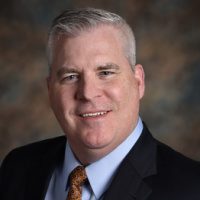
Tom Harvieux– As vice president and chief supply chain officer, Tom Harvieux is responsible for leading BJC HealthCare’s supply chain and logistics strategy to deliver efficient, cost-effective, and high-quality outcomes. His responsibilities include executive leadership of 427 team members, dedicated 3PL consolidated services center, and $1.8 billion non-labor spend management.
With more than $6 billion in net revenues and more than 30,000 employees in the greater St. Louis area, BJC HealthCare is one of the largest nonprofit healthcare organizations in the United States and one of the largest employers in Missouri. BJC includes 15 hospitals and multiple community health locations.
Prior to joining BJC in 2018, Harvieux was the vice president of corporate supply chain management for Sanford Health, a $5 billion health system headquartered in Sioux Falls, S.D. There he had responsibility for $1.3 billion in non-labor spend management and led a team of 445.
Before joining Sanford Health in 2008, Harvieux served as director of supply chain operations at Fairview Health Services – Southdale Hospital in Edina, Minnesota. Prior to entering the health care field, he spent over 22 years in supply chain leadership roles in the military.
He holds a bachelor’s degree from Metropolitan State University in St. Paul, Minnesota, and a master’s degree in logistics management from Florida Institute of Technology. He serves on multiple non- profit and industry boards. Tom and wife Laurie have two adult daughters. Connect with Tom on LinkedIn.
